Special Report
50 Most Popular Restaurants That Won’t Reopen After The Pandemic
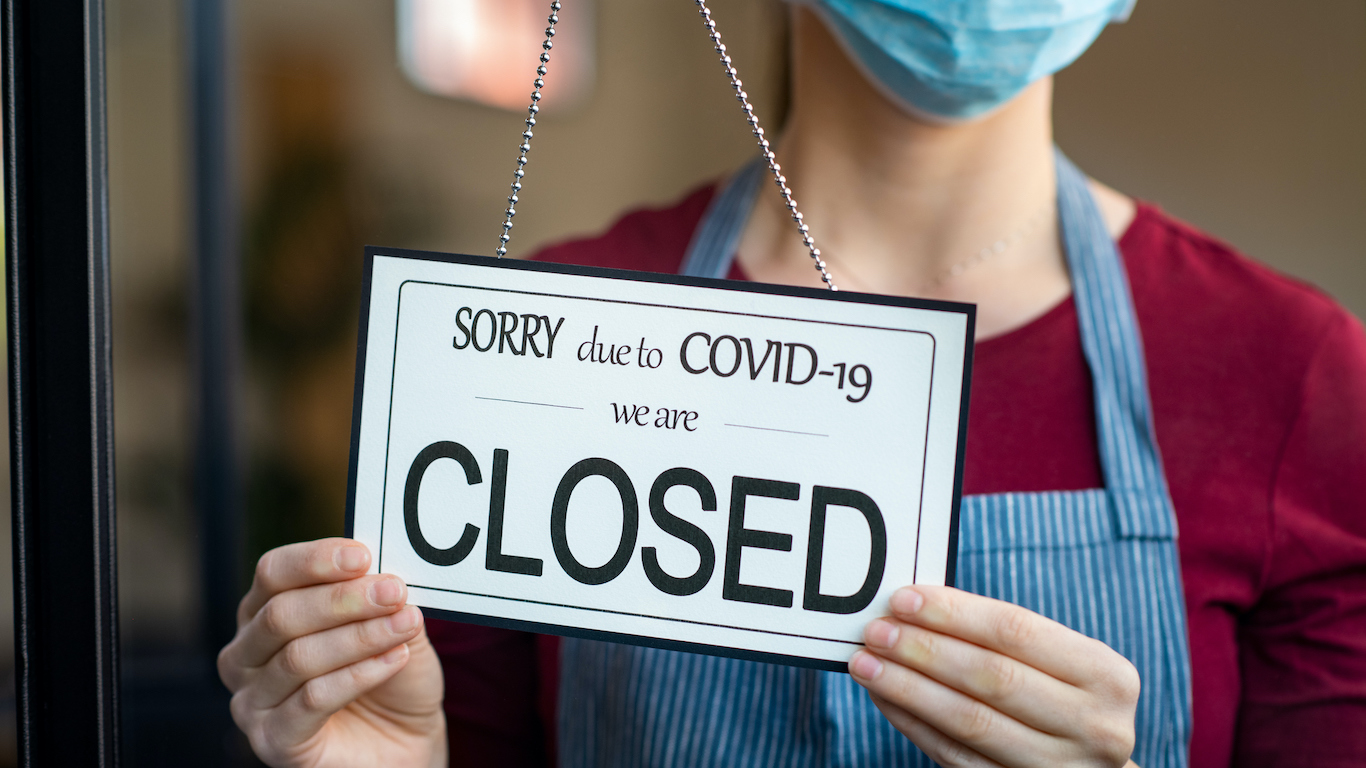
Published:
Last Updated:

When cities and states around the country began imposing lockdowns and closing places of business in March, most restaurateurs probably assumed that they’d be taking only a temporary break. With that in mind, many tried — with varying degrees of success — to keep going in the interim with takeout and delivery services. As the lockdown stretched on and on, though, even those who had been able to struggle through the crisis began to wonder if they’d ever be able to recover financially from months of lost or diminished business.
Even as restaurants were gradually allowed to reopen for outdoor and limited indoor service, many found it impossible to break even. And when jurisdictions that had eased the rules for dining out were forced to reimpose them as COVID-19 cases spiked in various parts of the country, many operators simply gave up. (These are states where recently reopened bars and dining rooms are closing again.)
As with so much else related to the pandemic, the restaurant landscape changes constantly. According to the trade newsletter Restaurant Dive, “Unlike retail, restaurant closures have fluctuated from March through July based on the rapidly evolving and disparate mandates that have been put into place at local levels.”
At one stage, food service business analysts predicted that major chains might have a better chance of surviving shutdowns and capacity restrictions than independents. This doesn’t appear to have been the case, with such enterprises as TFI Fridays, Denny’s, IHOP, and Dunkin’ shutting down numerous units, and standbys like California Pizza Kitchen declaring bankruptcy.
Independent restaurants are being affected even more, however. According to a study conducted for the Independent Restaurant Coalition, as many as 85% of the nation’s smaller restaurant groups and individual establishments might close permanently by the end of 2020. With a leadership team that includes such culinary stars as José Andrés, Tom Colicchio, Andrew Zimmern, and Nancy Silverton, the Coalition is an organization of hundreds of independent operators dedicated to trying to save America’s restaurant industry.
Pointing out that their industry employs some 11 million people, the Coalition is currently lobbying Congress to pass a $120 billion bailout bill for small and medium-size restaurants. Whether or not they are successful, it is obvious that restaurants are among the small businesses that need the most help during the COVID-19 crisis.
Meanwhile, some of the country’s most popular eating places — including everything from decades-old institutions to newcomers that were smash hits before the pandemic hit — have been transitioning from temporary to permanent closure with alarming speed. Even celebrity chefs on the order of Andrés, Wolfgang Puck, Thomas Keller, David Chang, and Daniel Boulud have been victims of the pandemic’s brutal impact.
Click here for the 50 most popular restaurants that won’t reopen after the pandemic.
24/7 Tempo has tracked permanent restaurant closings around the country since the coronavirus reached our shores. Of the many thousands of places that have shut down definitively, some were particularly popular — iconic eating places with dedicated followings and often famous names attached. This is our latest update of the situation, including places in 17 states and the District of Columbia. Unfortunately, it is certain that many more names will be added to the list as the crisis stretches on.
California: Din Tai Fung
> Location: Arcadia
This highly acclaimed international dumpling and noodle house chain, founded in Taiwan in 1972, opened this, its first North American location, in 2000. Now it’s gone. A post on the restaurant’s Instagram page reads, “As a result of the current economic climate, we have made the difficult decision to permanently close…” Southern Californians will still be able to enjoy Din Tai Fung’s famous xiao long bao — better known as soup dumplings — and other specialties at the chain’s Century City and Santa Anita locations.
[in-text-ad]
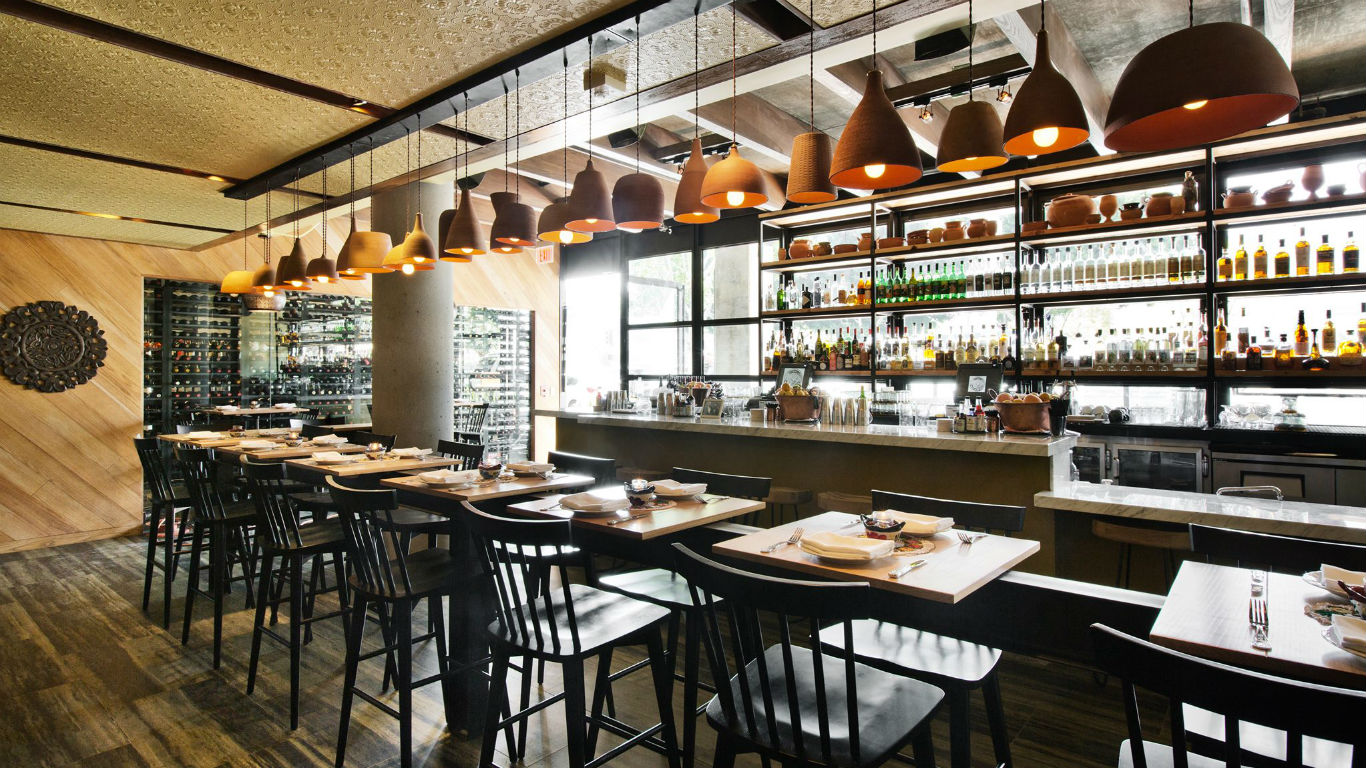
California: Broken Spanish
> Location: Los Angeles
Described by Eater Los Angeles as “powerful” and “genre-bending,” this five-year-old contemporary Mexican restaurant depended heavily for business on the downtown nexus of sports, convention, and concert venues — all now closed because of the pandemic. Owner-chef Ray Garcia announced the restaurant’s demise in early August on Instagram. He does plan, however, on launching a delivery-only taco outlet called Mila.
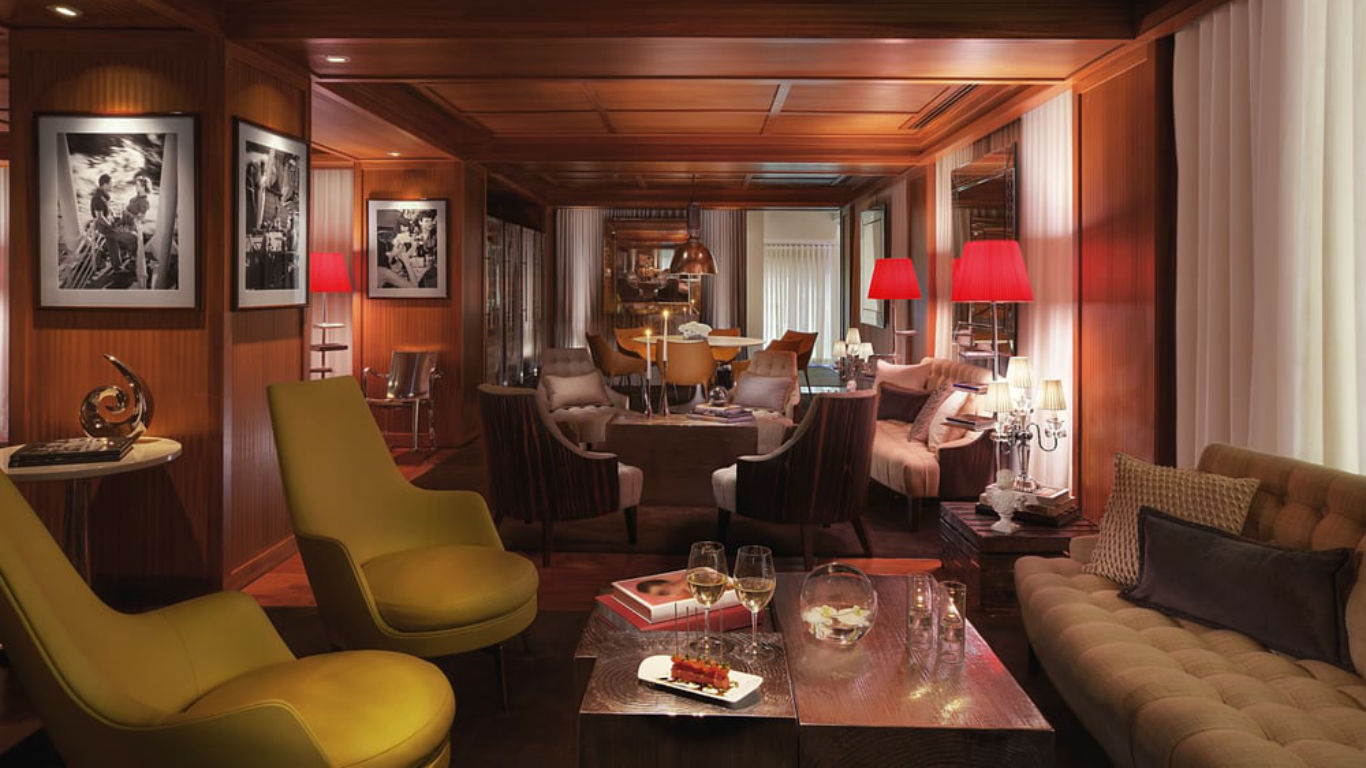
California: The Bazaar by José Andrés and Somni
> Location: Los Angeles
High-profile chef-restaurateur and humanitarian José Andrés announced in early August that he was shuttering his Spanish-inspired dining room The Bazaar in the SLS Beverly Hills hotel. Though the closing comes amidst legal actions between the chef’s ThinkFoodGroup and the hotel owners that aren’t directly related to the pandemic, the group’s statement on the closure blames the hotel company for “alleging defaults that were obviously incapable of being cured while our employees lived through shelter-in-place orders.” Also closed is Somni, the 10-seat avant-garde tasting-menu counter operation, nestled behind The Bazaar — one of the few L.A. restaurants with two Michelin stars.
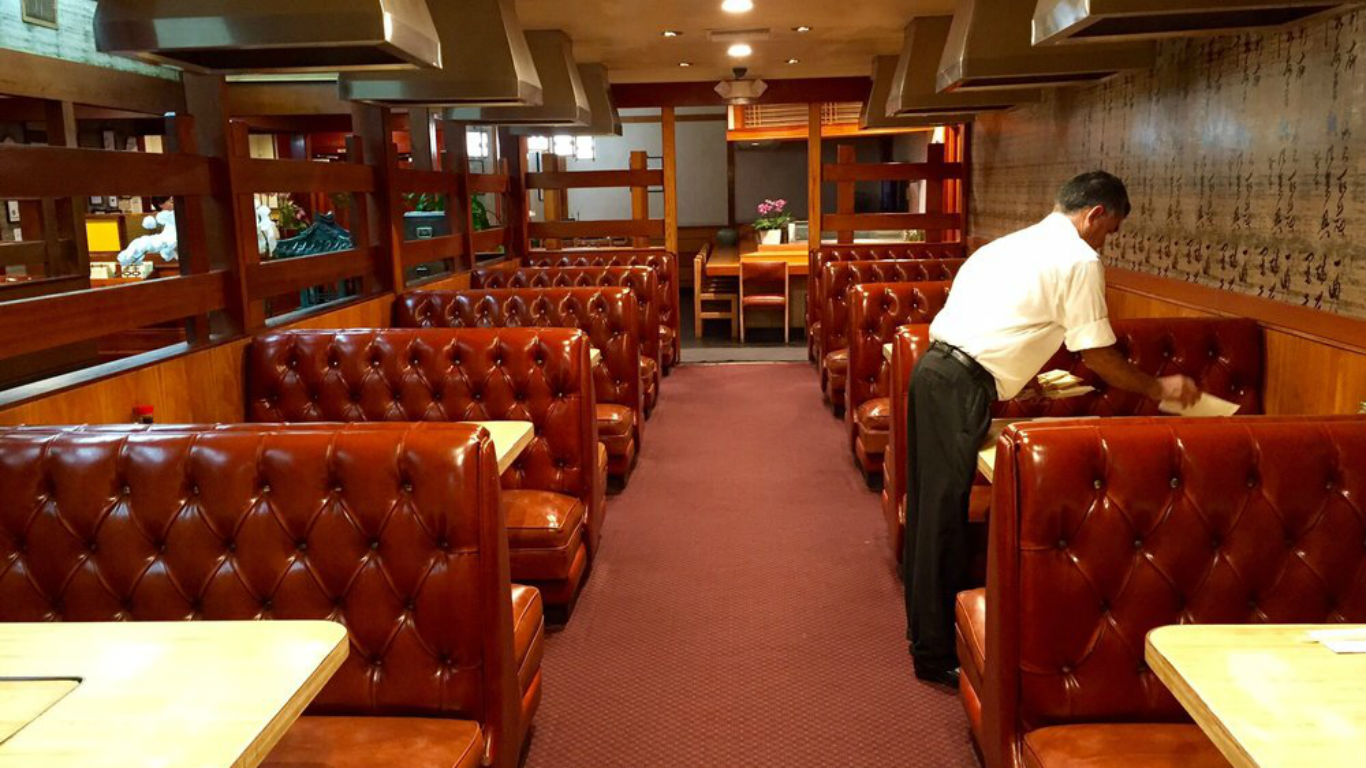
California: Dong Il Jang
> Location: Los Angeles
Los Angeles is home to the world’s largest Korean community outside Korea itself, and its ever-growing Koreatown neighborhood has long been famous for its many restaurants, serving both traditional and modern Korean fare. Dong Il Jang was one of the oldest of these, launched 41 years ago. In announcing on Instagram that this year was their last, the owners wrote, “Over the four decades we have been through many difficult situations but the Covid-19 pandemic has made it very difficult for us to survive …”
[in-text-ad-2]
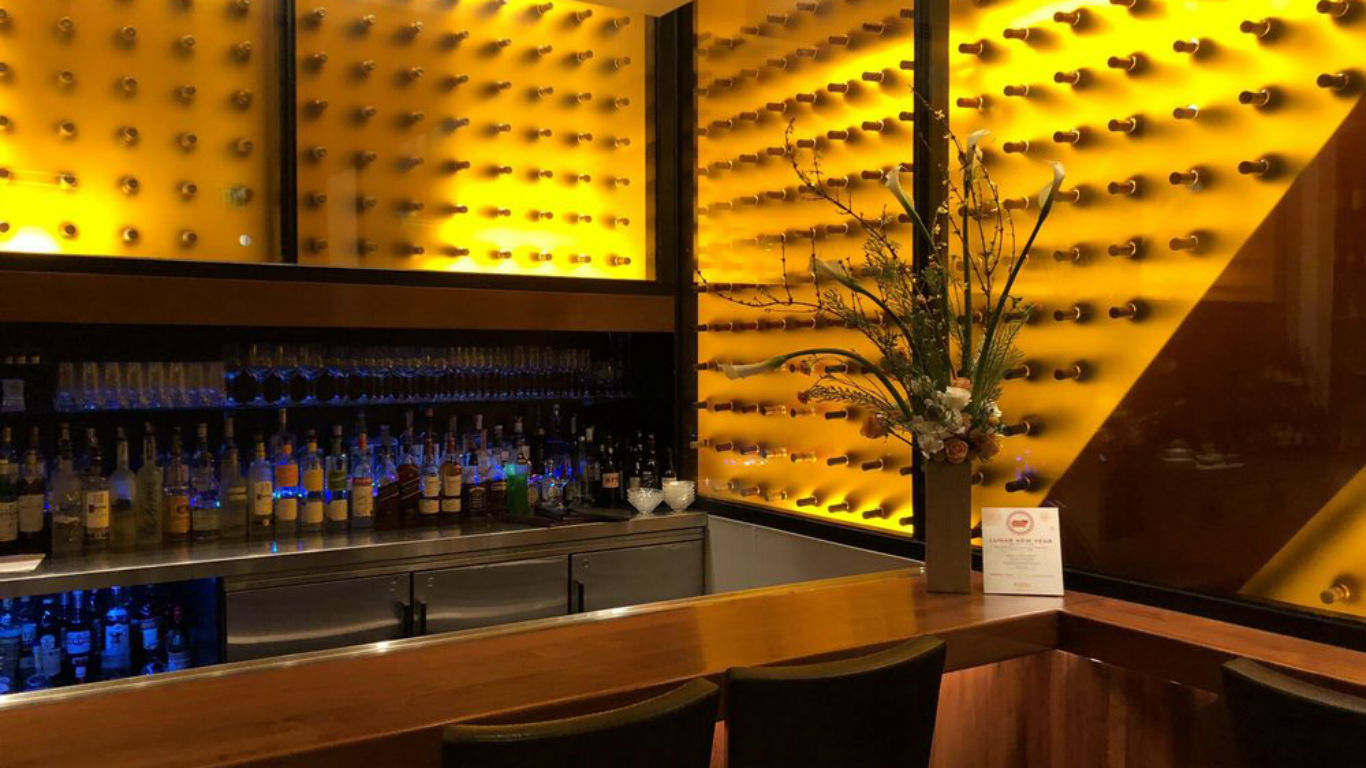
California: Patina
> Location: Los Angeles
German-born, French-trained chef Joachim Splichal opened the original Patina in Hollywood in 1989, moving it downtown to the Frank Gehry-designed Walt Disney Concert Center in 2003. Patina eventually spawned an empire of more than 50 other restaurants in five states and Japan, and while Splichal no longer owns the Patina Restaurant Group, the original had remained his flagship. Though no official announcement of its closing has been made, employees recently received letters of termination, effective Aug. 15, and the restaurant no longer appears on the group website.
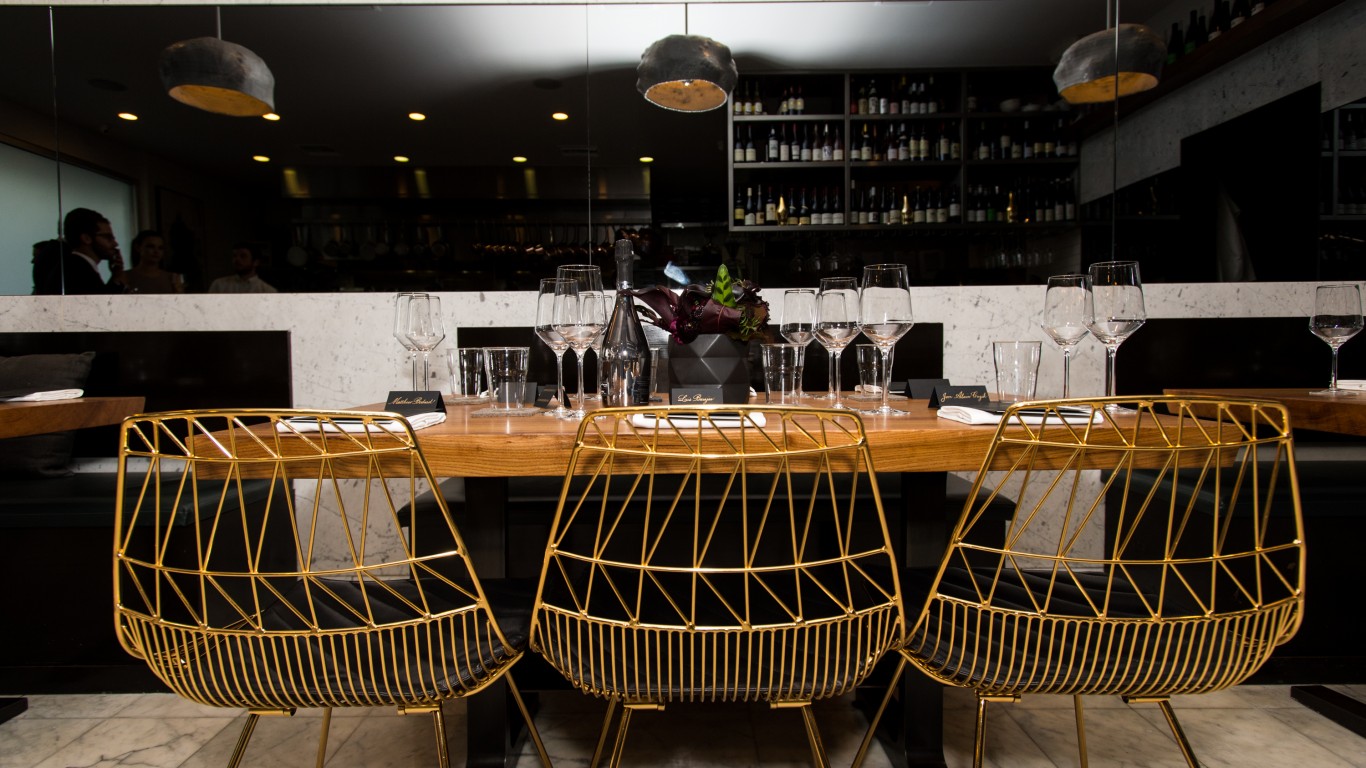
California: Trois Mec
> Location: Los Angeles
According to the New York Times, the proprietors of this hole-in-the-wall tasting-menu restaurant — French chef Ludo Lefebvre and his American colleagues Jon Shook and Vinny Dotolo (of the popular Animal and Son of a Gun) — “are surely among the most influential restaurateurs” in L.A. Unfortunately, neither their prominence nor their Michelin star helped them survive the pandemic. “Covid-19 has changed everything,” Lefebvre wrote on his Instagram page, adding, “I had to accept the reality that it was time to let the idea of reopening Trois Mec go.”
[in-text-ad]
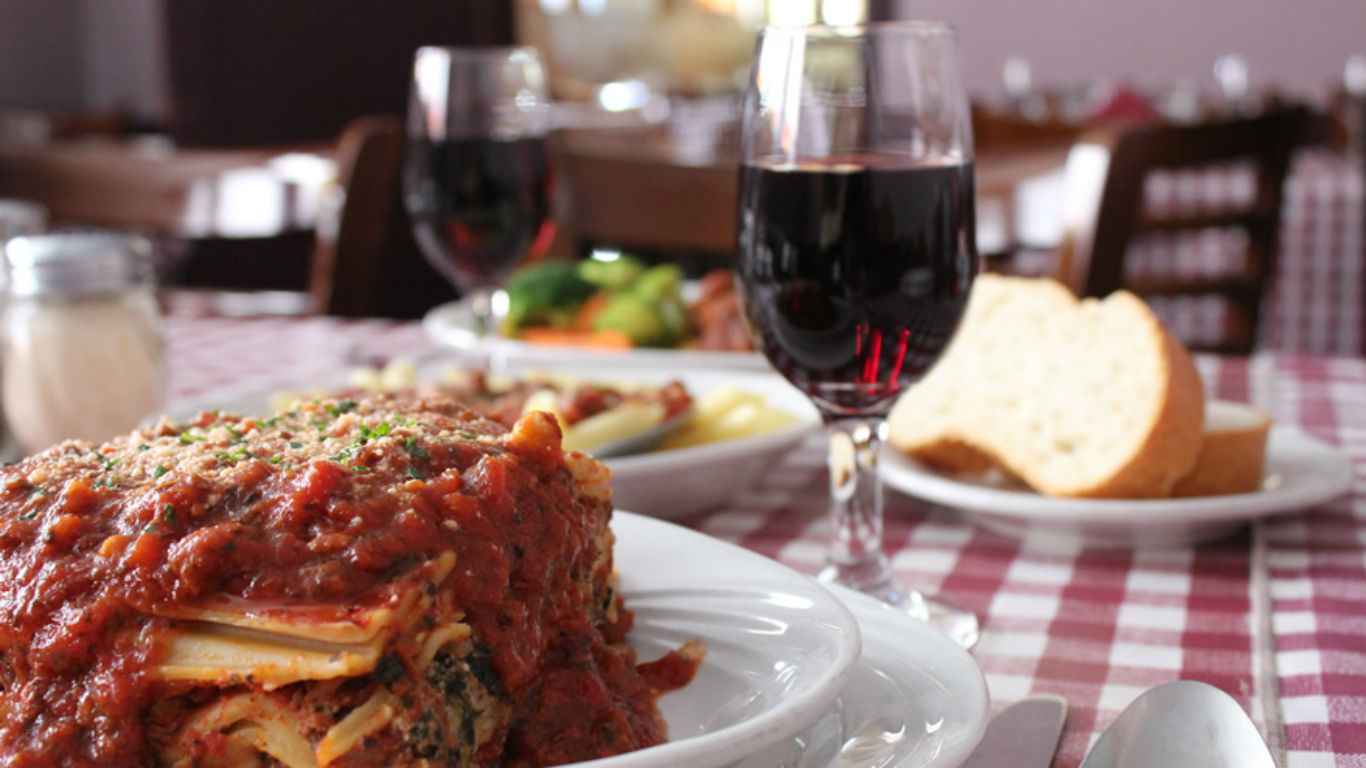
California: Español Italian
> Location: Sacramento
Español Italian Restaurant — the oldest continuously operating restaurant in the state capital, opened in 1923 — has announced that it has permanently ceased operations. Originally, the dining room at the Hotel Español, or Spanish Hotel, was known for Basque food. When the Luigi family bought it in 1959, they switched to Italian fare, moving the place to its current location in 1965. Looking at the books in early July, co-owner Perry Luigi told Valley Community Newspapers, he “kind of made the decision that we can’t stay open another month or everything will be gone.”
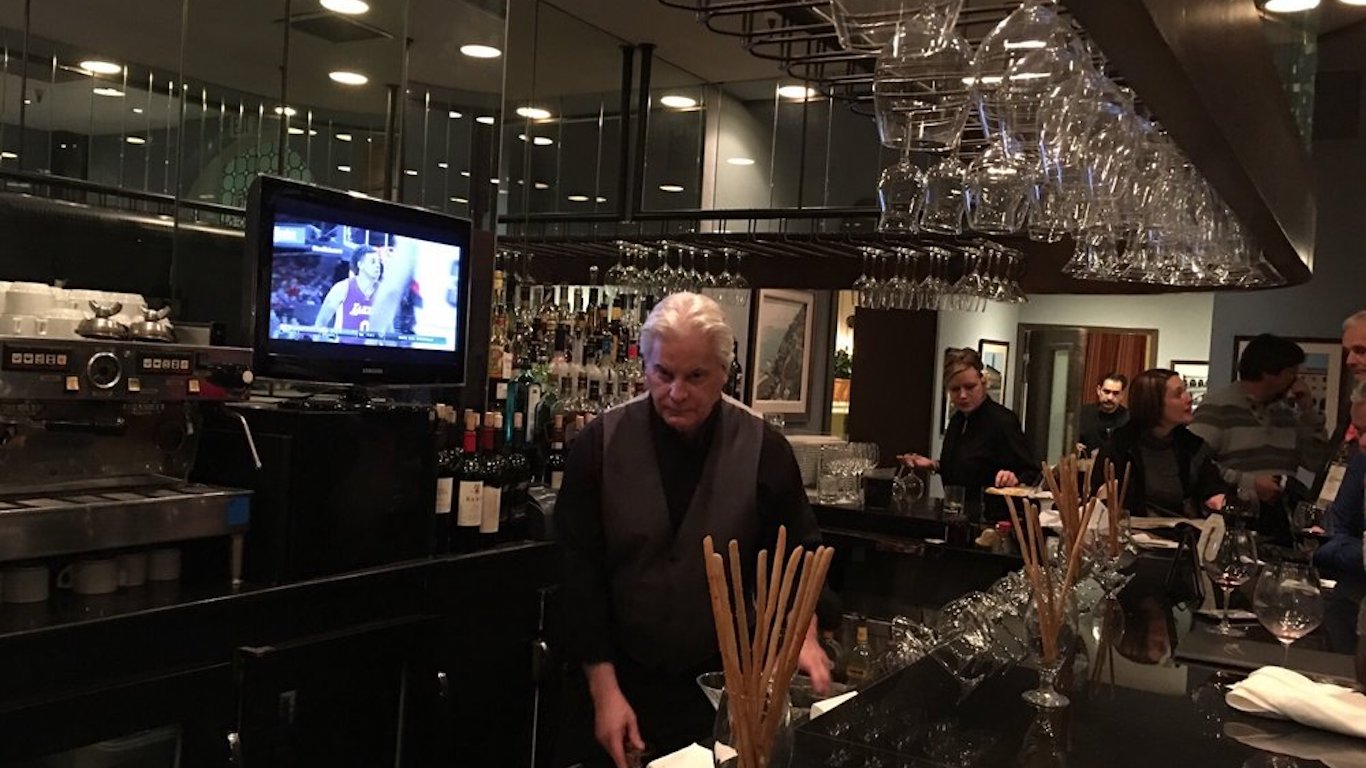
California: Biba Restaurant
> Location: Sacramento
Bologna-born Biba Caggiano ramped up the restaurant scene in the California capital when she opened this place 33 years ago. Caggiano, who went on to become a successful cookbook author and TV food personality, died last August, and her family was already reportedly having difficulty running the restaurant before the crisis. A statement signed by Caggiano’s husband and daughters on the Biba website announced “Our last day was Friday, May 8th, 2020,” explaining that “Our beloved restaurant community has been shuttered and with the uncertainty of what the future holds, we are unable to wait out this storm.”
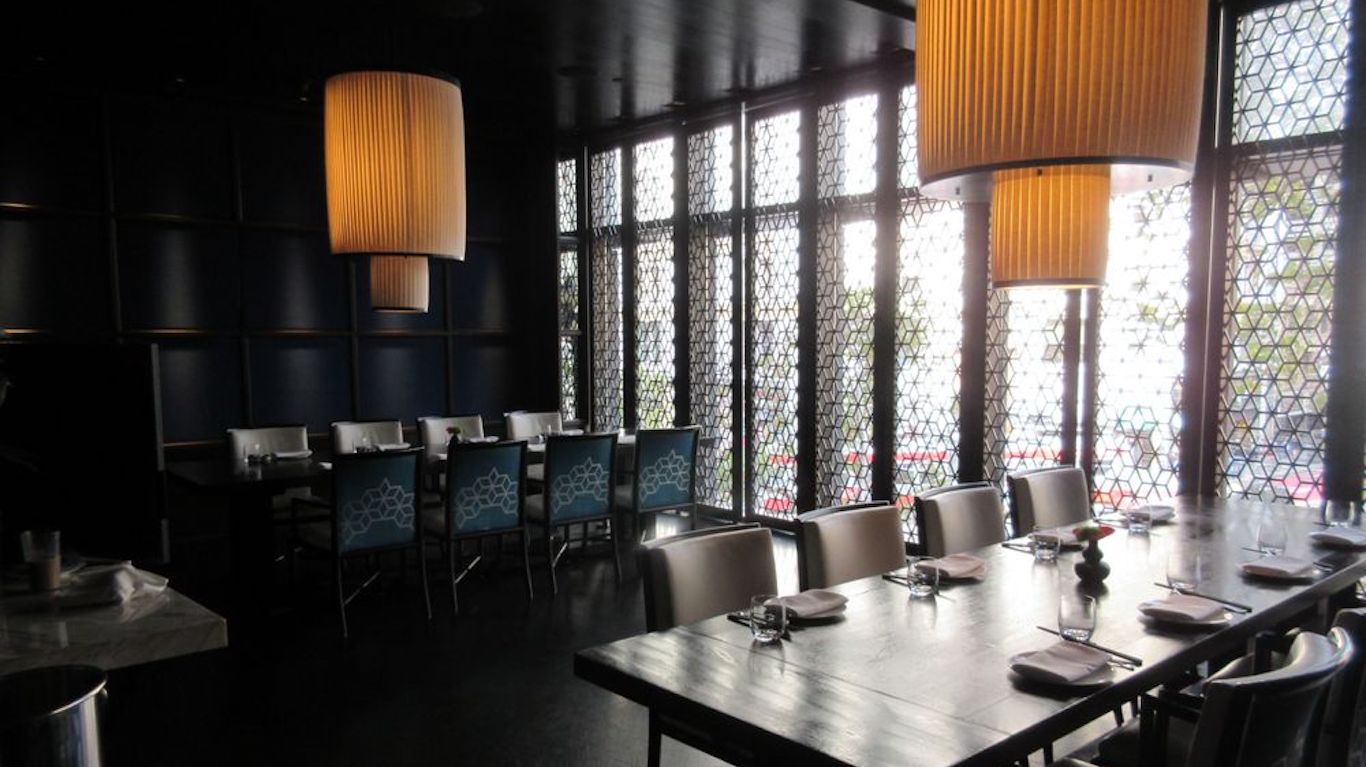
California: Hakkasan
> Location: San Francisco
An upscale 170-seat Chinese restaurant, which cost a reported $7 million to build, Hakkasan closed permanently in late May after eight years of serving black cod with Champagne and honey, black truffle duck, and other luxurious specialties. The decision was made “To preserve the long-term stability of our business,” according to a company statement given to the San Francisco Chronicle.
There are 11 other outposts of the chain — three more in the U.S., two in London, and one each in five other cities in Asia and the Middle East. The Hakkasan in Shanghai, the chain’s only operation in China itself, has also closed in response to the coronavirus’s effects on business.
[in-text-ad-2]
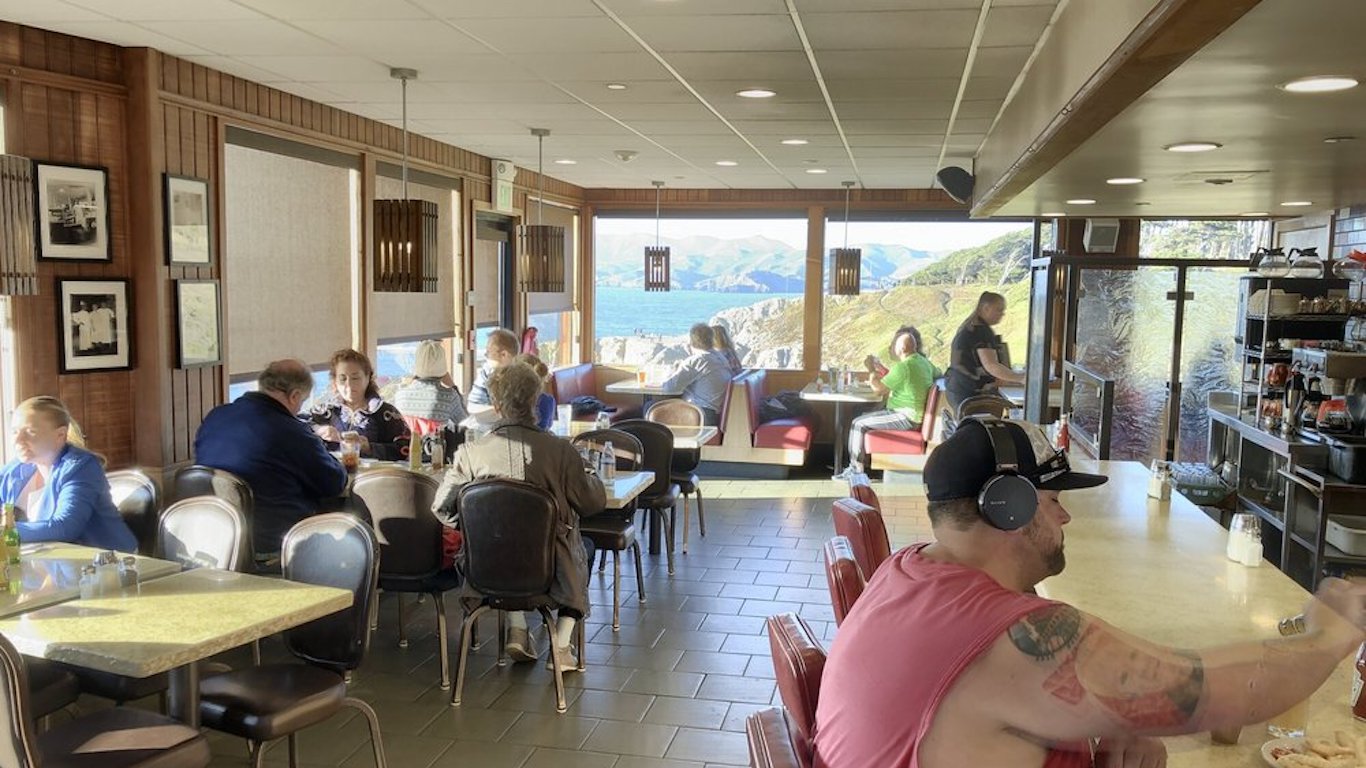
California: Louis’
> Location: San Francisco
A San Francisco restaurant icon that opened in 1937 above the remains of the historic 1894-vintage public swimming complex called Sutro Baths, Louis’s is no more. The owners — grandchildren of the original owners — posted a message on the restaurant Facebook page in mid-July reading in part “After much deliberation and a lot of tears we have decided after 83 continuous years of business…to close our business permanently.”
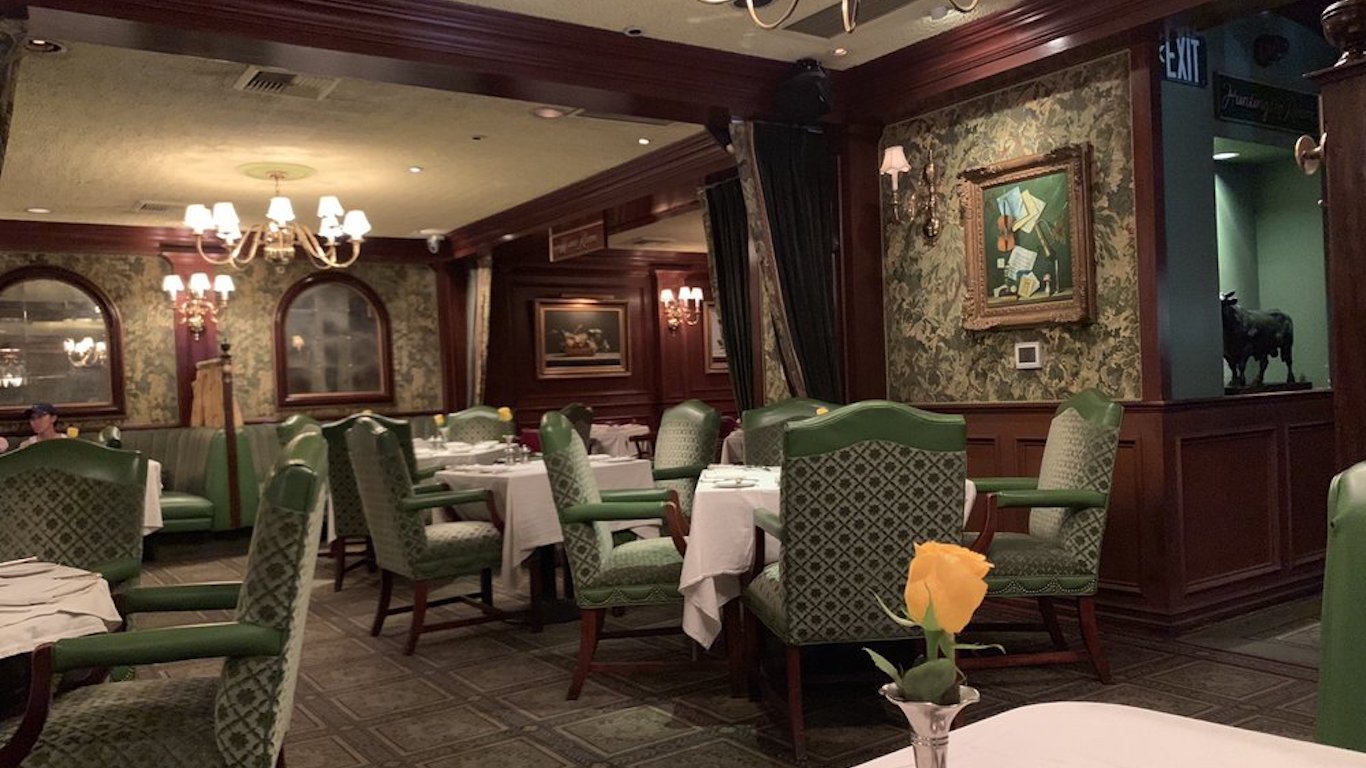
California: Pacific Dining Car
> Location: Santa Monica
The original Pacific Dining Car in downtown L.A., founded in 1921 and probably the city’s best-known steakhouse, spawned this Westside location in 1990. Serving 24 hours a day until the coronavirus lockdown, it was considered a Santa Monica essential. The owners say that the combination of the pandemic crisis and curfews imposed during the recent protests made it untenable for the restaurant to reopen.
The contents of the place — including kitchen equipment, table settings, furniture, and paintings — were sold at auction in June.
[in-text-ad]

Colorado: 20th Street Café
> Location: Denver
After 74 years in business under three generations of the Okuno family, this neighborhood breakfast-and-lunch establishment has called it quits. The place has survived “up-turns and crazy downturns in the economy,” wrote current owners Rod and Karen Okuno on the restaurant website, “but this final one proved to be insurmountable for our little corner of the world.”
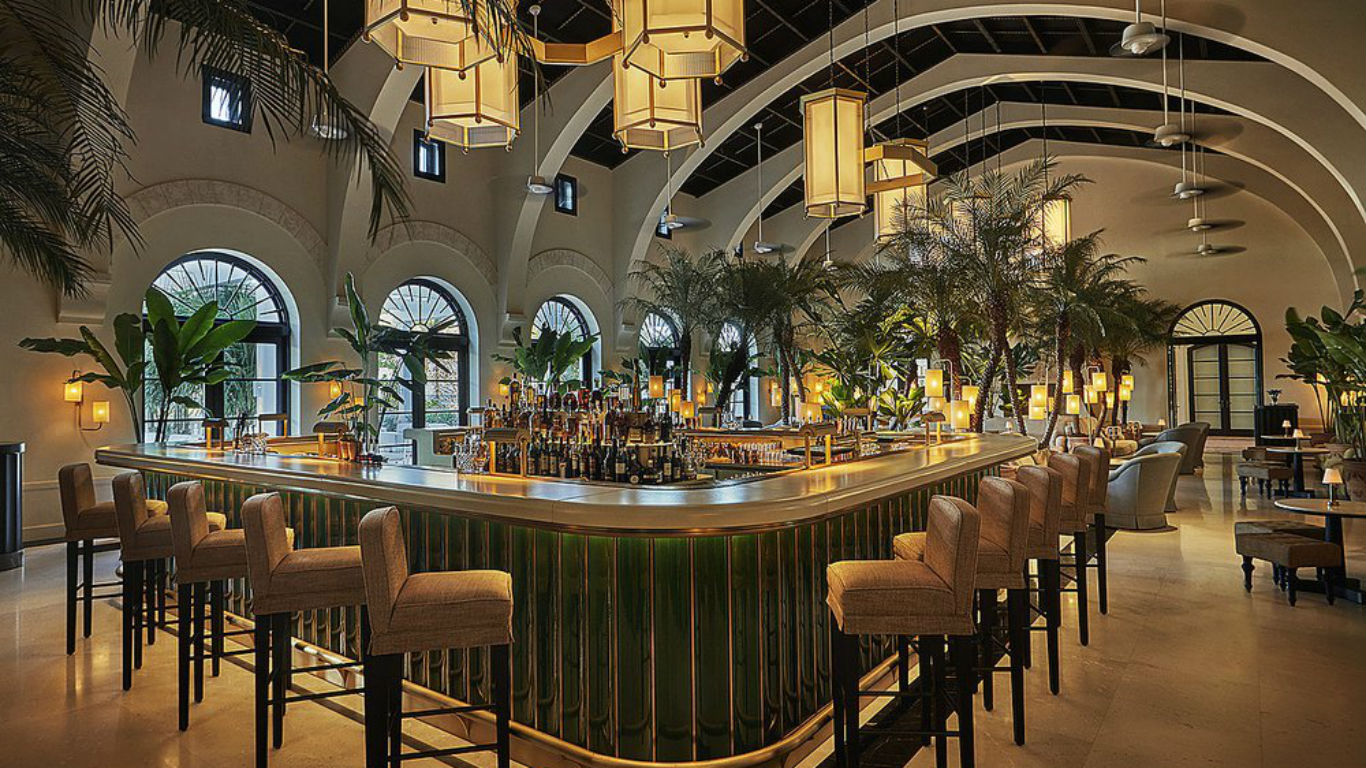
Florida: Le Sirenuse Restaurant & Champagne Bar
> Location: Miami
One of two luxury restaurants in the 1930s-vintage Four Seasons Surf Club hotel — the other being the Surf Club Restaurant, run by famed chef Thomas Keller — Le Sirenuse is now permanently closed. “The adverse impact of the COVID-19 pandemic and its effect on the South Florida community […] have required us to make this difficult decision,” reads a statement on the three-year-old restaurant’s website. The original Le Sirenuse on Italy’s Amalfi Coast remains open, as does Keller’s restaurant — though his similarly themed TAK Room in Manhattan (see below) is another COVID-19 casualty.
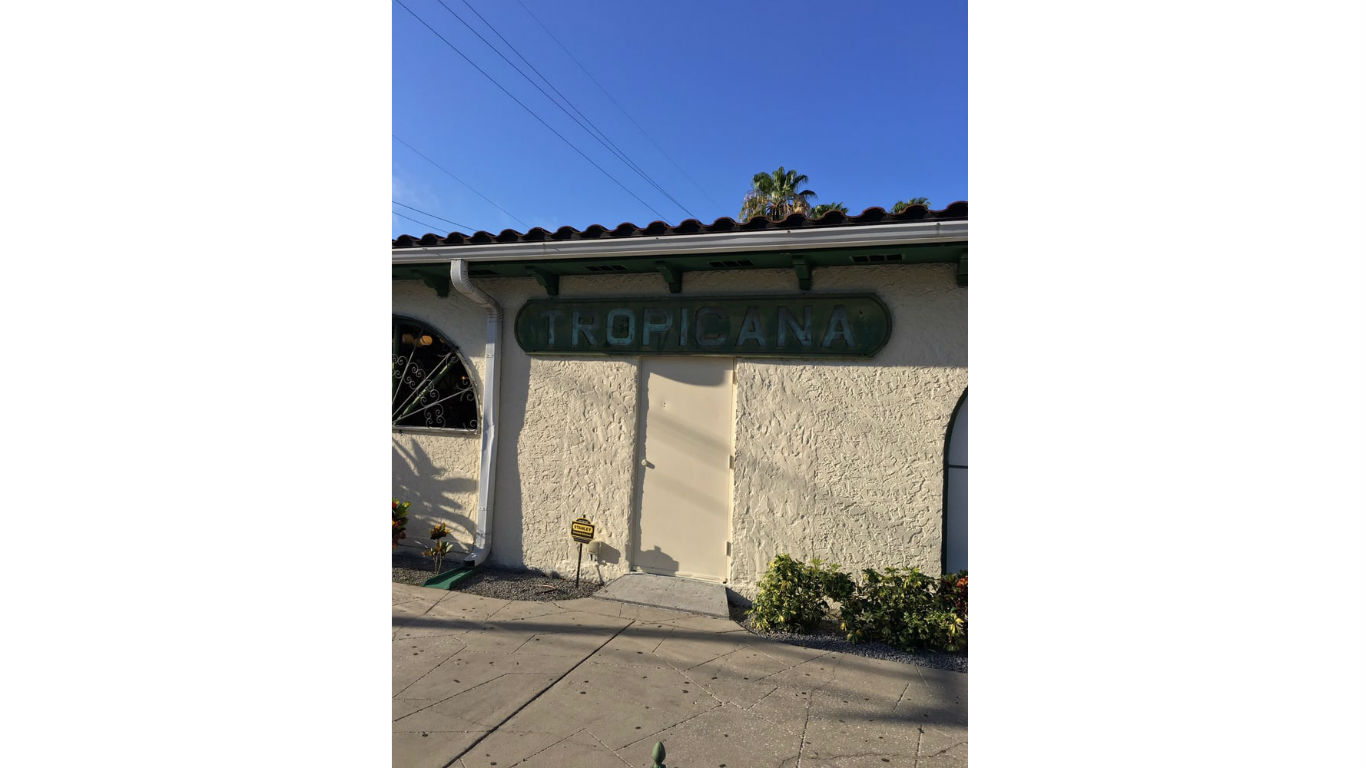
Florida: La Tropicana
> Location: Tampa
Presidents George W. Bush and Jimmy Carter, along with several Florida governors, were among the many customers of this 1963-vintage Cuban café over the years. A focus of public life in Tampa’s historic Ybor City neighborhood, La Tropicana also served a wide range of less famous customers. In explaining why the place was closing down, proprietor Gio Peña told the Tampa Bay Times, “I’d say 80 percent of my regular customers are older people. They are afraid to come out.” He added “We were doing good. Business was steady. And then came COVID.”
[in-text-ad-2]
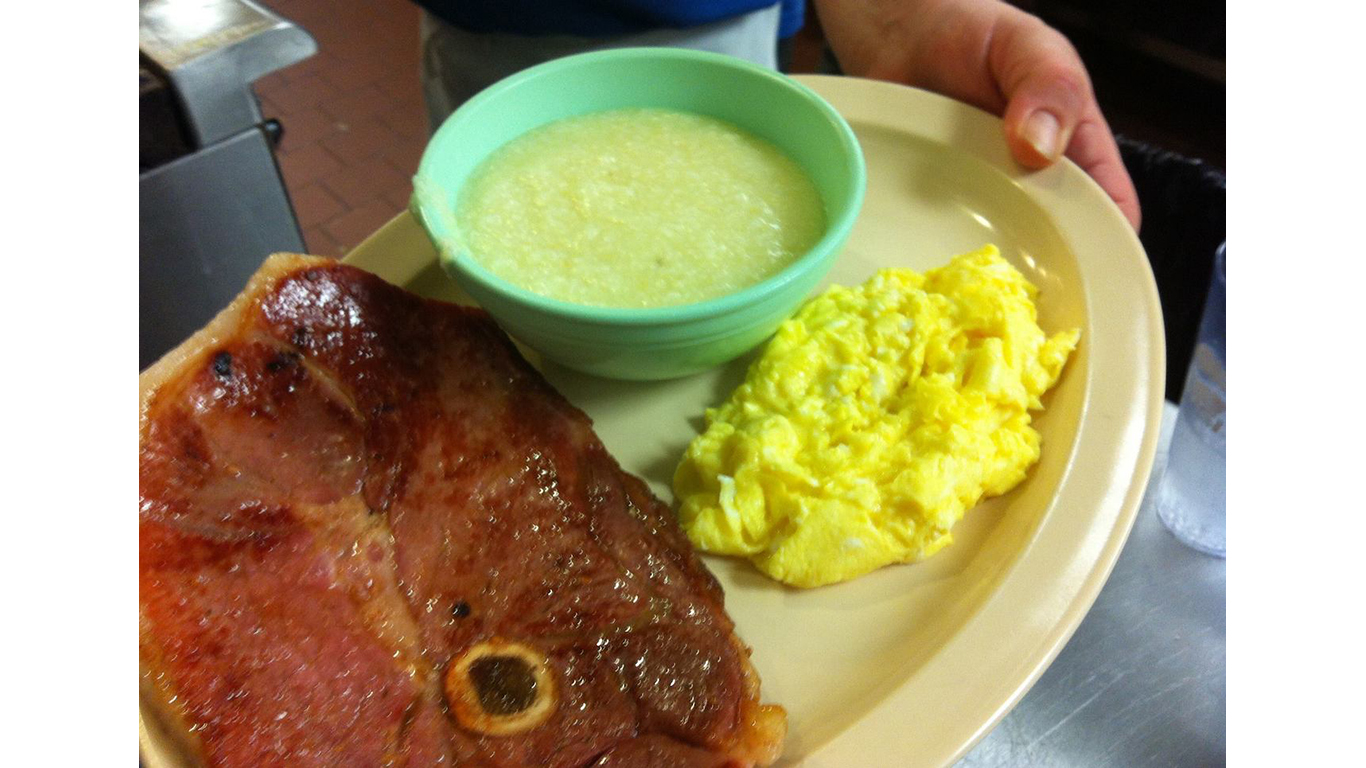
Georgia: Anne and Bill’s
> Location: Forest Park
After 46 years in business in this Atlanta suburb, Anne and Bill’s — known for its meat-and-three menu (various meats served with a variety of side dishes), its breakfasts, and its homemade desserts — is going out of business. A statement from the restaurant in mid-May said that “our sales have dropped so low that we cannot continue to operate….” A second location, in McDonough, southeast of Forest Park, has also closed.
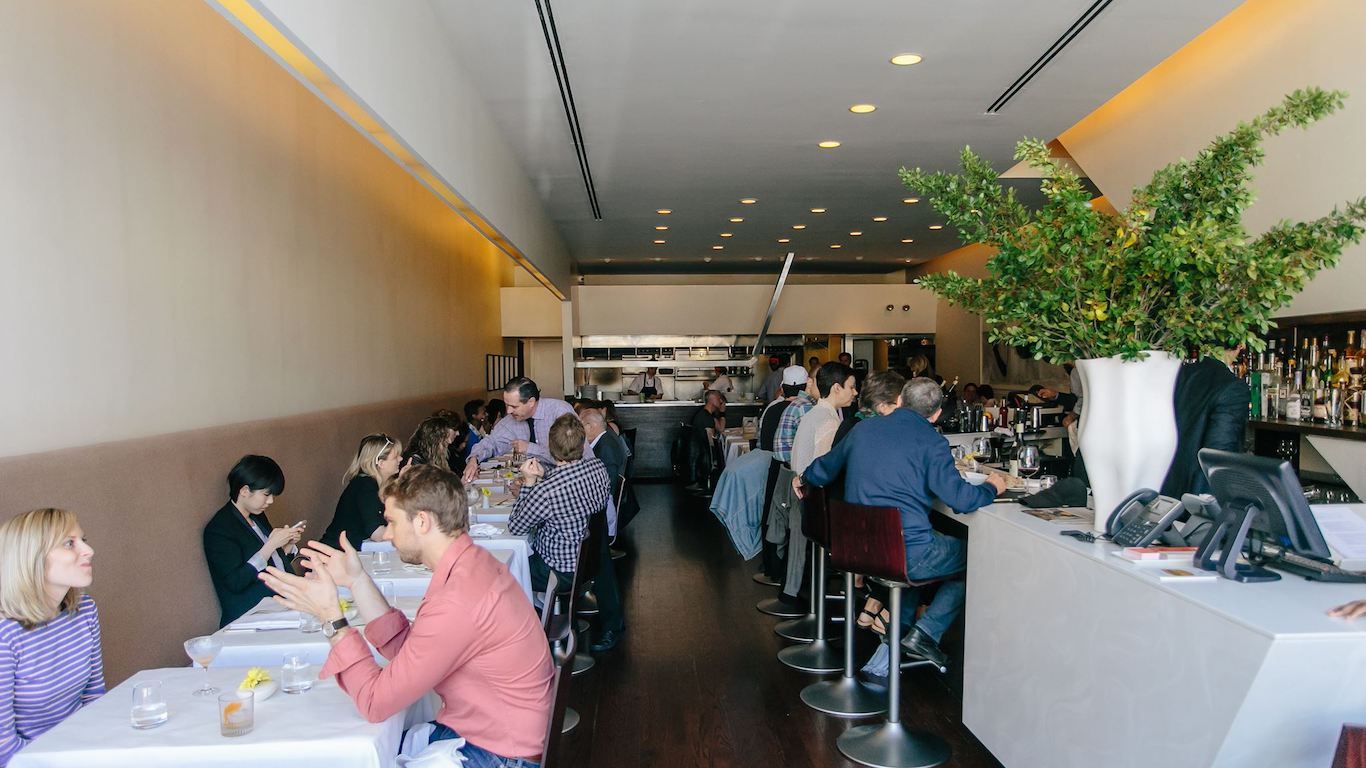
Illinois: Blackbird
> Location: Chicago
This well-loved West Loop restaurant — hailed by the Chicago Tribune as “one of Chicago’s greatest restaurants” — was opened 22 years ago by Paul Kahan, who has since become one of the city’s best-known chef-restaurateurs. (His other places include Avec, Publican, and Big Star). Blackbird’s intimate size and layout made social distancing impossible, and the restaurant announced on its website that “we have made the very difficult decision to close our doors.”
[in-text-ad]
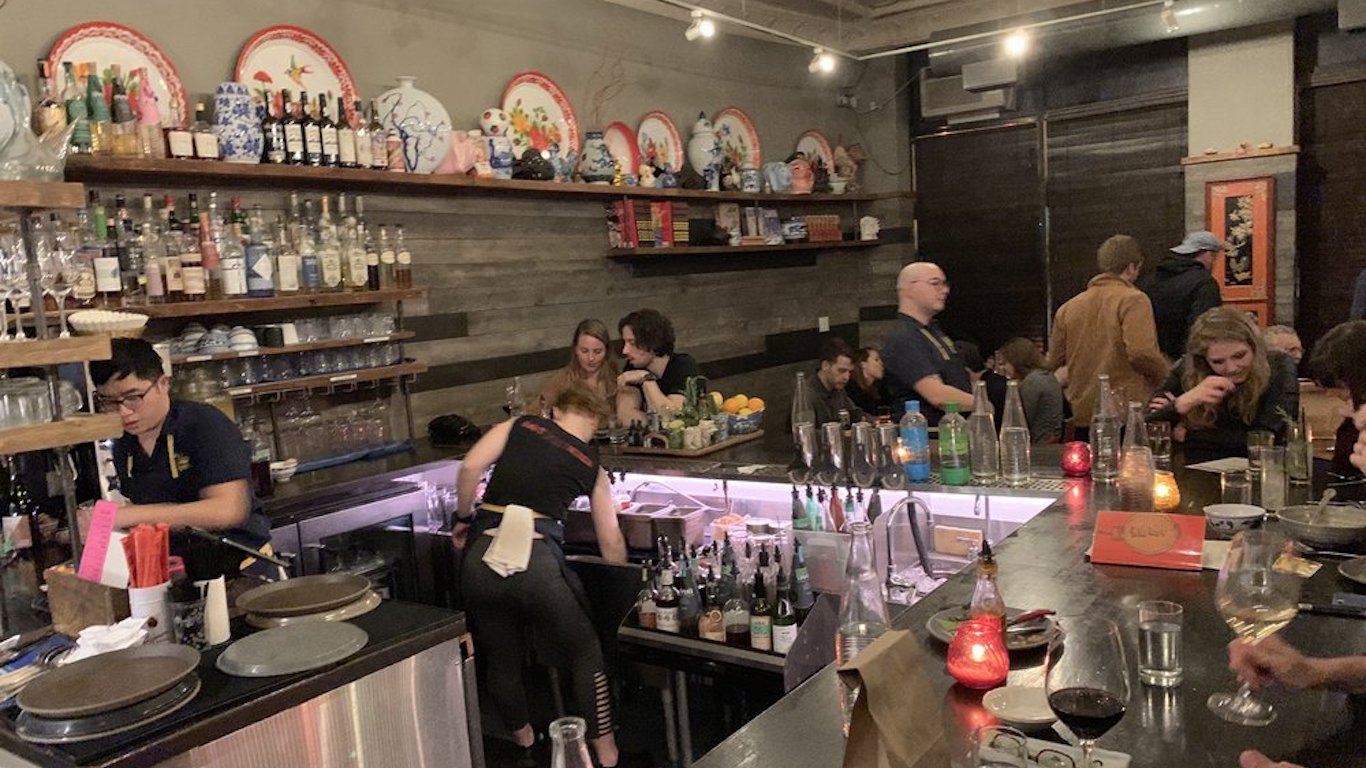
Illinois: Fat Rice
> Location: Chicago
This well-known restaurant featuring the Portuguese-Chinese fusion cooking of Macau (and given a Bib Gourmand rating from the Guide Michelin, signifying “good quality, good value cooking”) stopped restaurant service in April. Instead, it was converted, supposedly permanently, into the Super Fat Rice Mart, selling specialty groceries and meal kits.
In June, however, that operation shut down indefinitely — not due to COVID-19 but following accusations by former employees of abusive behavior and racist remarks on the part of co-owner Abe Conlon.
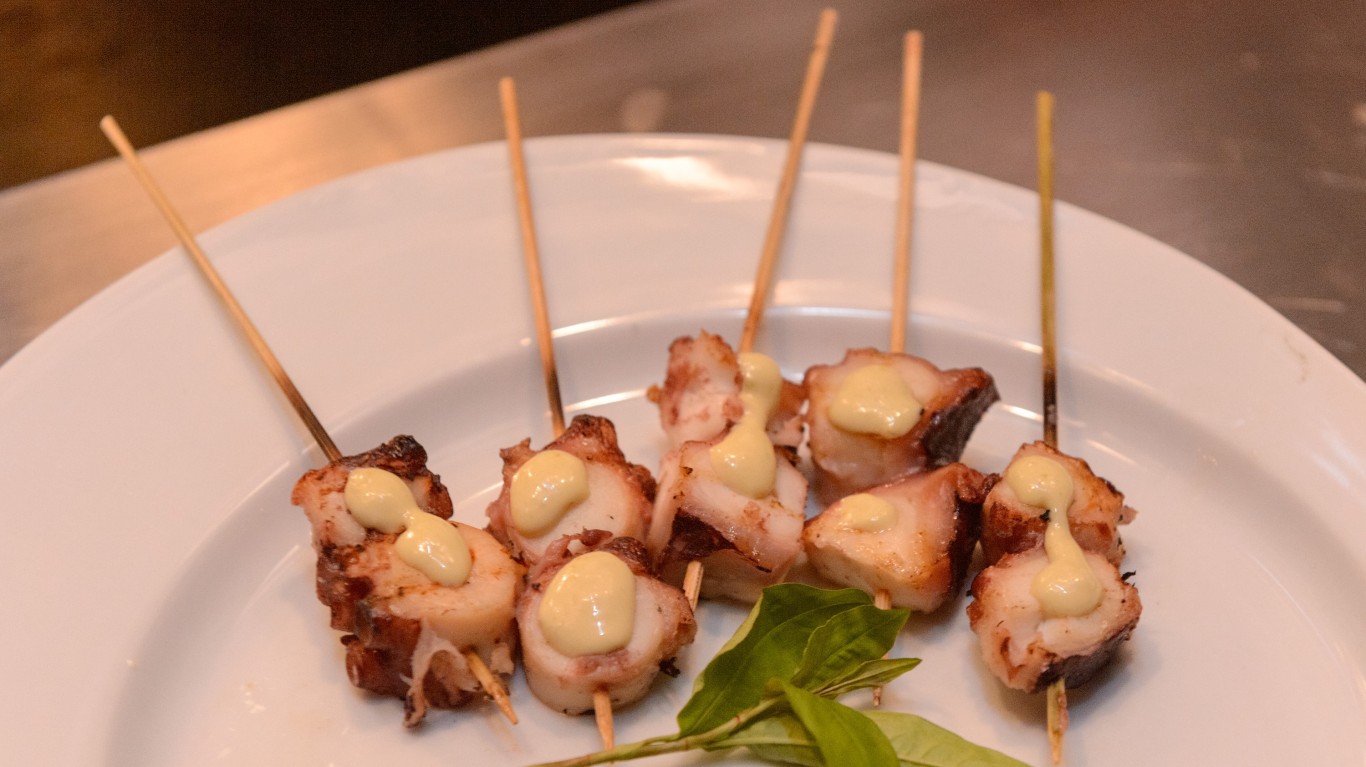
Illinois: Katana
> Location: Chicago
An offshoot of an upscale Los Angeles-based Japanese restaurant with a celebrity clientele opened in Chicago three years ago, specializing in creative sushi offerings and top-of-the-line wagyu beef cooked on charcoal imported from Japan. The group that owns Katana announced in mid-May that it would not be reopening. A location in Dubai has also closed.
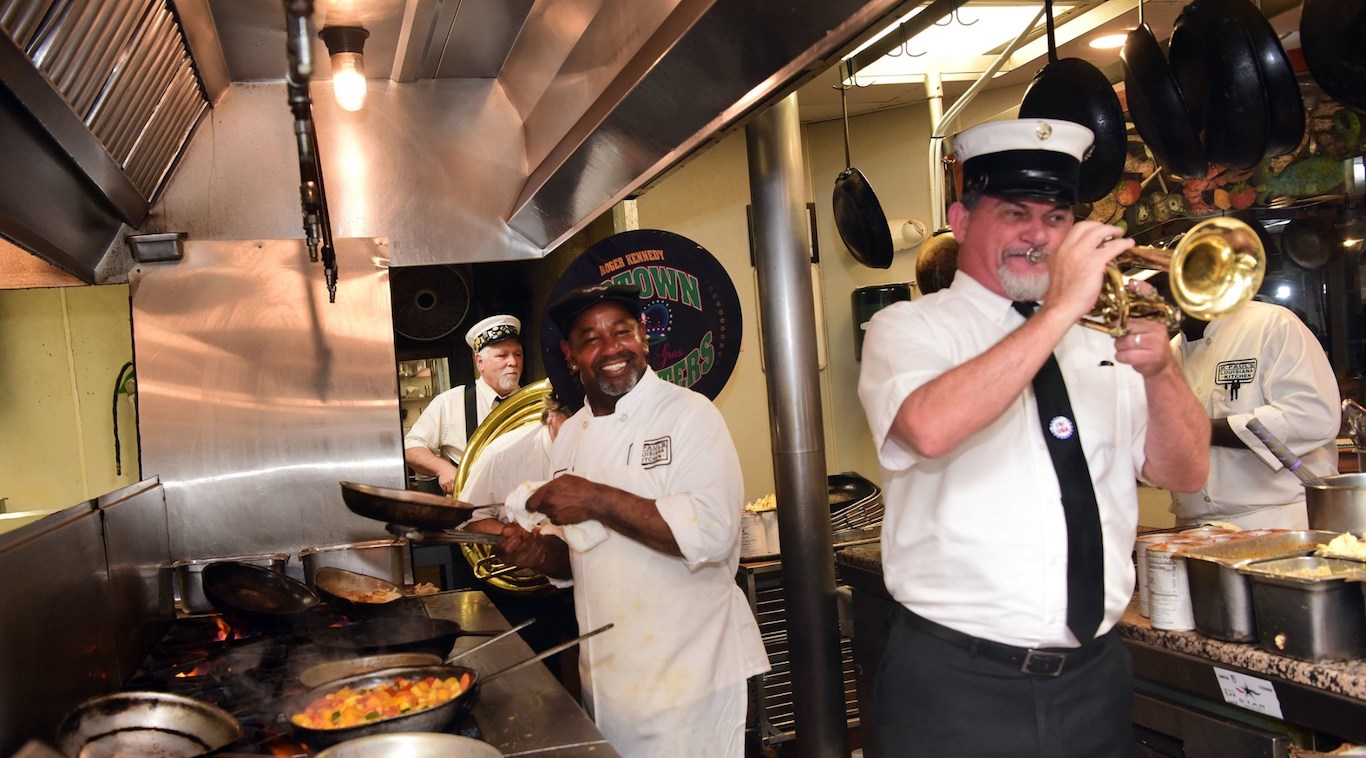
Louisiana: K-Paul’s Louisiana Kitchen
> Location: New Orleans
The demise of the legendary K-Paul’s in mid-July is one of the most significant of all COVID-related restaurant closures. This highly influential Cajun establishment was opened in 1979 by chef Paul Prudhomme and his wife, Kay, and it soon became a Crescent City bucket-list destination, with lines forming nightly outside. With such vividly flavored dishes as the iconic blackened redfish, K-Paul’s ignited a nationwide craze for Cajun cooking. Kay died of cancer in 1993 and Prudhomme passed away in 2015, but the place stayed open under the chef’s niece, Brenda Prudhomme, and her chef husband, Paul Miller.
After several coronavirus-mandated closings and reopenings earlier this year, though, they issued a statement on July 13 “regretfully announcing permanent closure of K-Paul’s Louisiana Kitchen.” Miller explained to NOLA.com that “The business has been bleeding through this, and you can only bleed so much before you have to stop it.”
[in-text-ad-2]
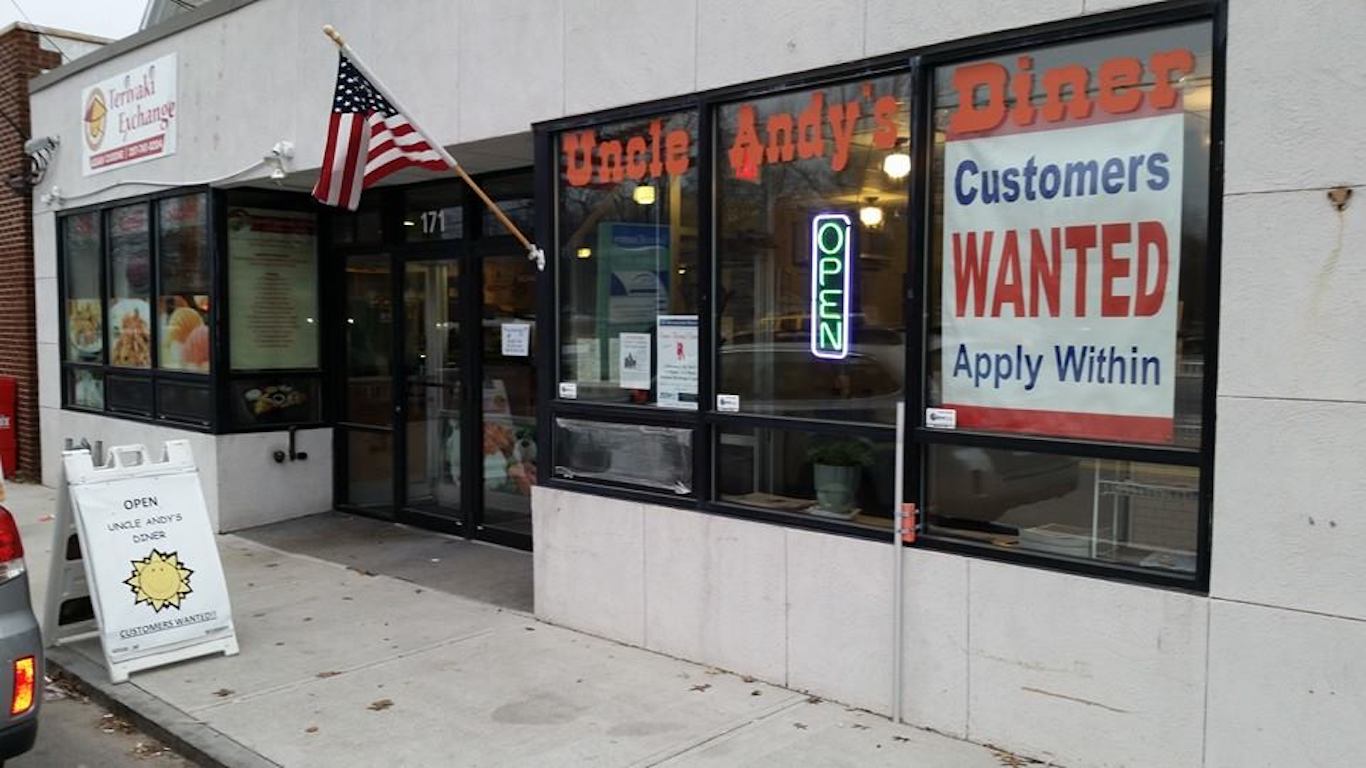
Maine: Uncle Andy’s Diner
> Location: Portland
Uncle Andy’s opened in 1954, establishing a strong local reputation for comforting diner classics — including made-to-order pancakes, which current proprietor Dennis Fogg would shape into dinosaurs or flowers to please his younger customers.
The diner was struggling even before the virus hit — it was the subject of a makeover on the Food Network show “Restaurant Impossible” — but as Fogg explained to the Portland Press-Herald, “We’ve always been able to just get by, but now we can’t.”
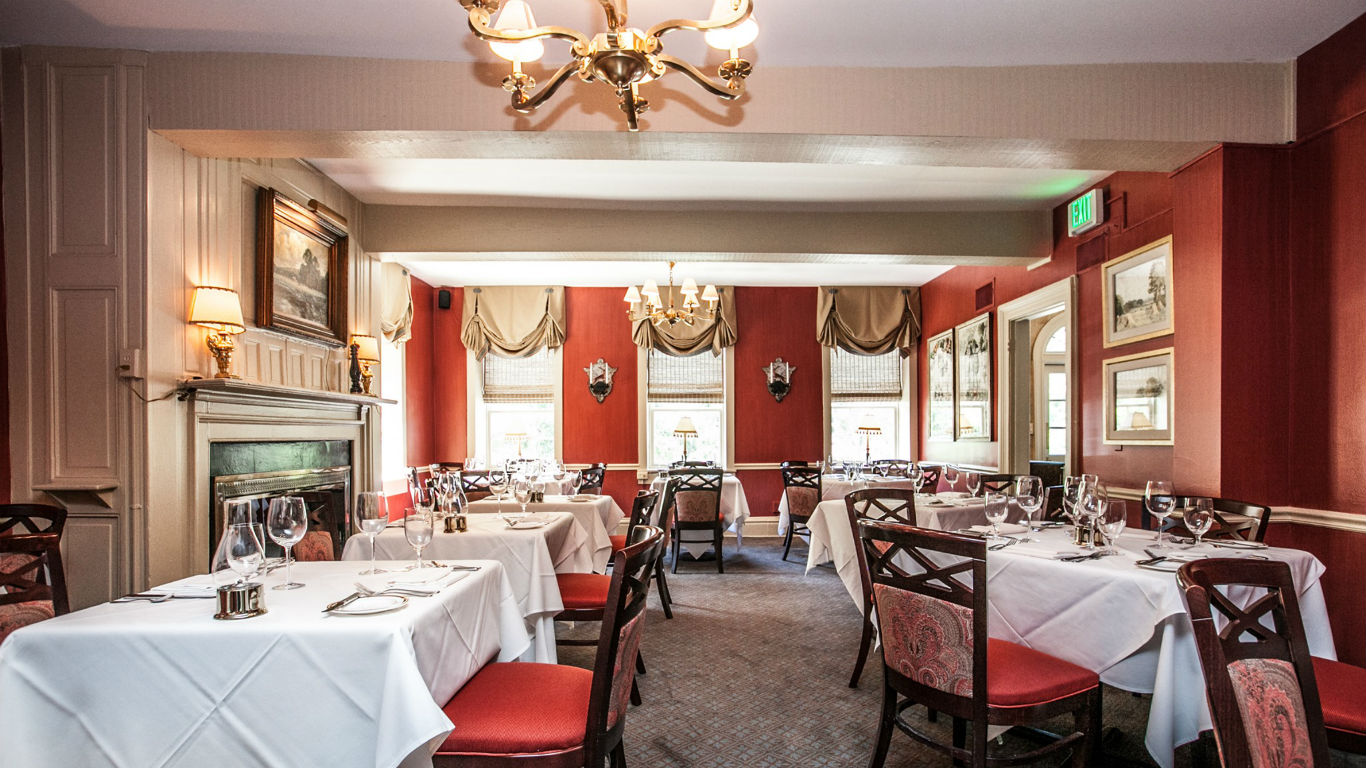
Maryland: Milton Inn
> Location: Sparks
This Baltimore County landmark, opened in 1947 in an historic 280-year-old fieldstone building and known for its classic Continental cuisine, has served its last meal. In a statement on the restaurant’s website, proprietor and executive chef Brian Boston wrote that, while he was used to facing challenges daily, “the COVID 19 pandemic was one challenge I couldn’t overcome. Our financial losses are overwhelming and I find it impossible to re-open.”
[in-text-ad]
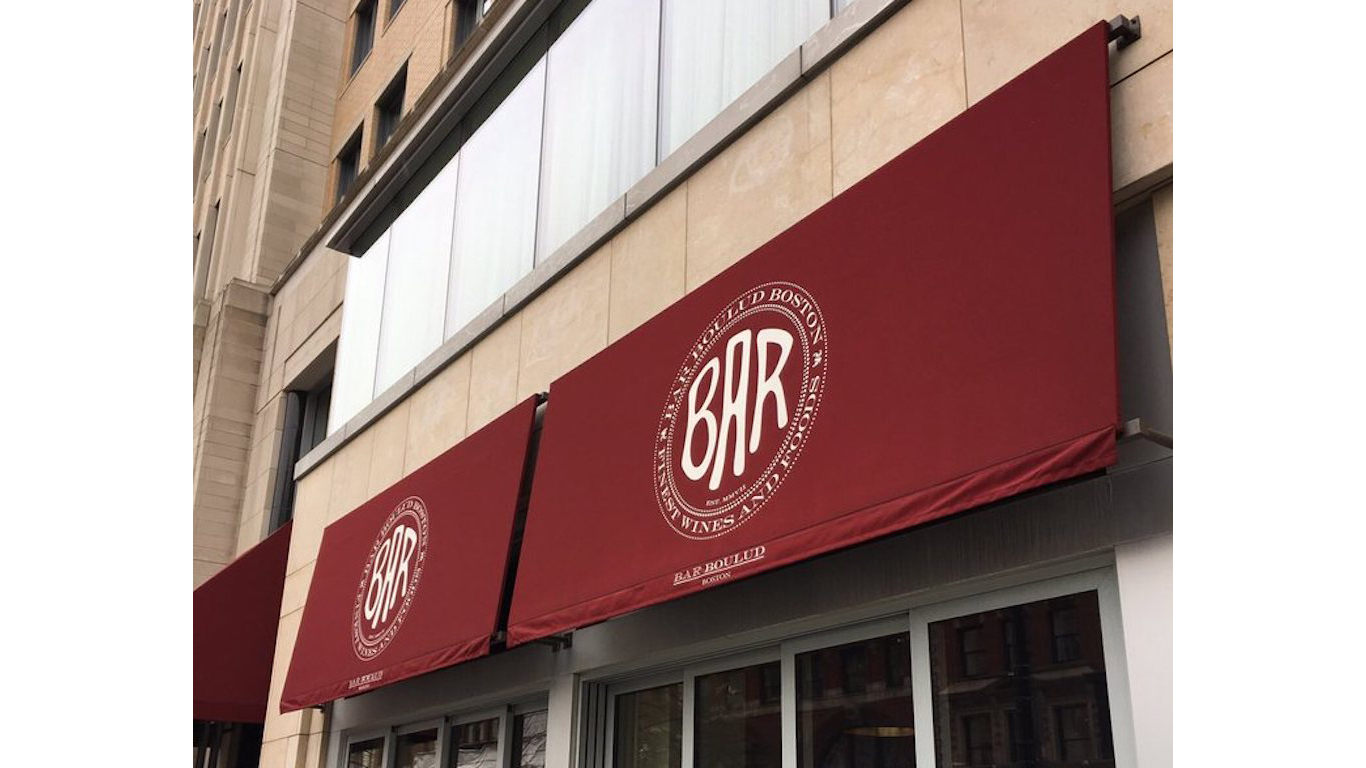
Massachusetts: Bar Boulud
> Location: Boston
Famed French chef-restaurateur Daniel Boulud announced in mid-June that he was closing down his sole Boston property, located in the Mandarin Oriental Boston hotel. An official statement reported that the restaurant, which opened in 2014, was a victim of the pandemic, which had a “negative impact on business levels…”
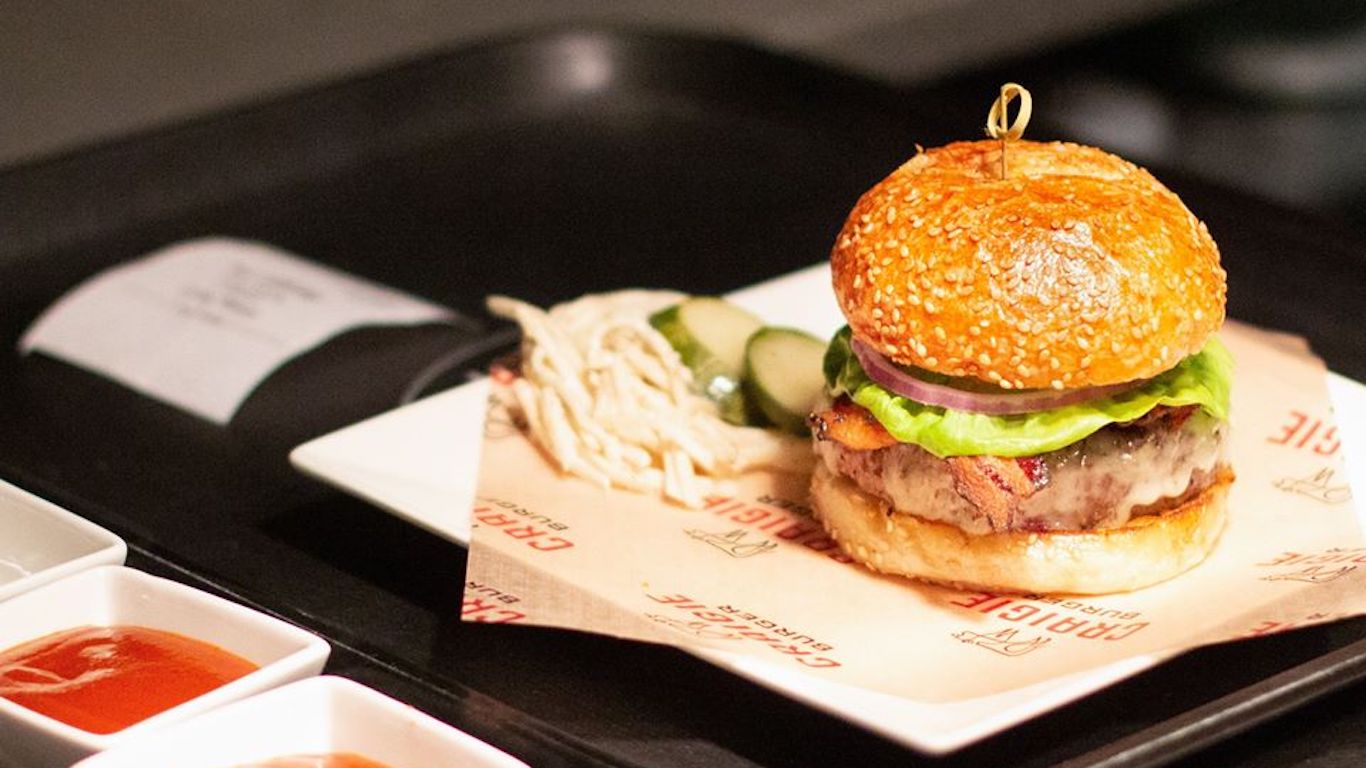
Massachusetts: Craigie Burger
> Location: Boston
Though it specializes in tasting menus of imaginative modern American fare, chef Tony Maws’ Craigie on Main in Cambridge became most famous for its epic burger, only 18 of which were prepared each evening. Last year, Maws capitalized on its fame by opening Craigie Burger in the new Time Out Market Boston in Fenway. The temporarily closed Craigie Burger won’t reopen, according to Maws and his partners. They feel that the lack of Red Sox games at Fenway Park and the absence of students from several nearby colleges would make reviving the enterprise too chancy.
Maws told the Boston Globe that the concept will eventually make a comeback, and that the burger is still available on Craigie on Main’s takeout menu.
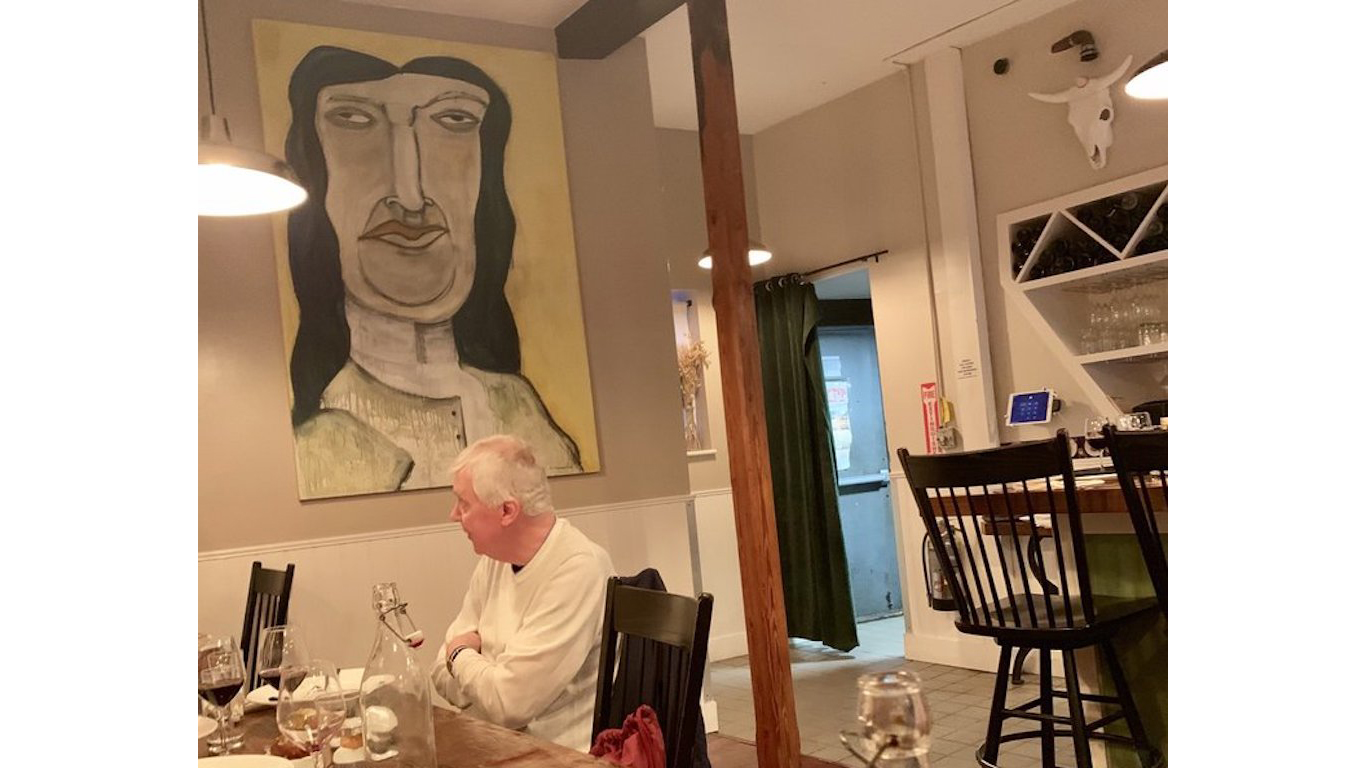
Massachusetts: The Table at Season to Taste
> Location: Cambridge
“Top Chef” finalist Carl Dooley announced in early May that the 20-seat prix-fixe restaurant he ran, attached to the Season to Taste catering operation, is permanently out of business. Season to Taste owner Robert Harris is restructuring his catering arm, and launching a take-out and delivery brand called Season to Go, but felt that the restaurant had to go. “[T]his is the sad and harsh reality I and the teams I employ all had to face,” he said in a press release.
[in-text-ad-2]
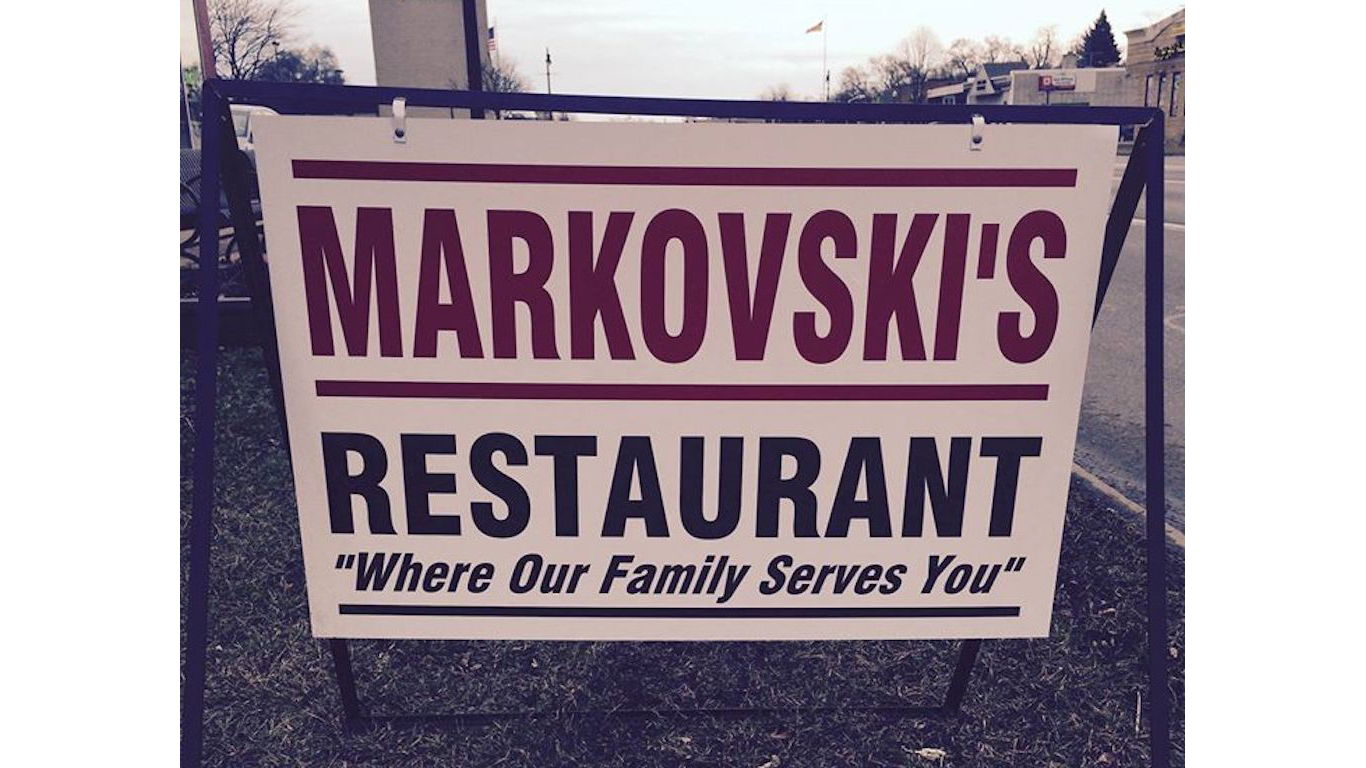
Michigan: Markovski’s Family Restaurant
> Location: Dearborn Heights
After 50 years in business in this suburb of Detroit, Markovski’s, famous for its stuffed cabbage, kielbasa, and other Polish specialties, has said goodbye. In a statement on Facebook, the proprietors declared that “A worldwide pandemic was the only thing that could separate our tightly knit family [and] if you were here, you were definitely family.”
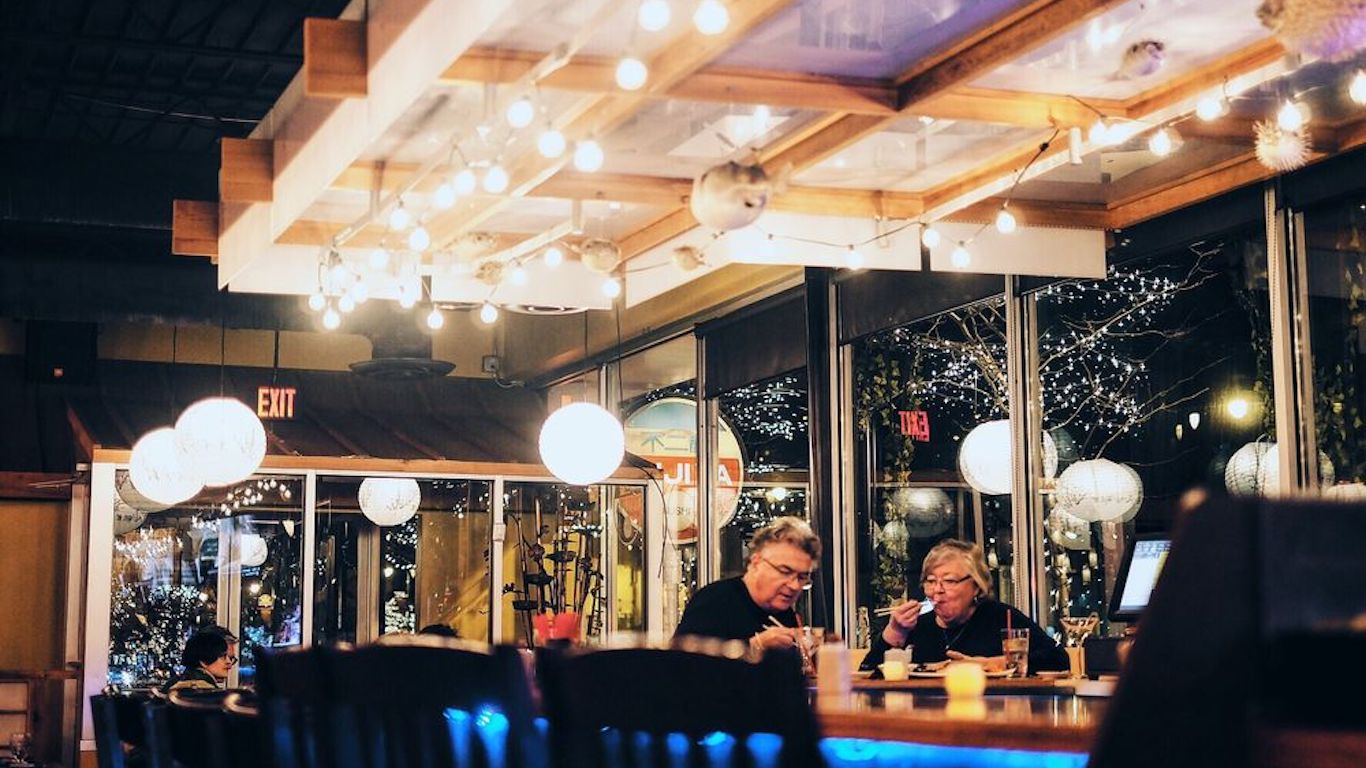
Minnesota: Fuji Ya
> Location: Minneapolis
When Reiko Weston opened Fuji Ya in 1959, it was apparently the first-ever Japanese restaurant in Minnesota. It expanded and spawned offshoots. Weston died in 1988, and two years later the place closed down — until her daughter brought it back to life in 1997. The restaurant shuttered temporarily in early May, but by the end of that month, its website carried the message: “Thank you for your support! Unfortunately we are closing our doors.”
[in-text-ad]
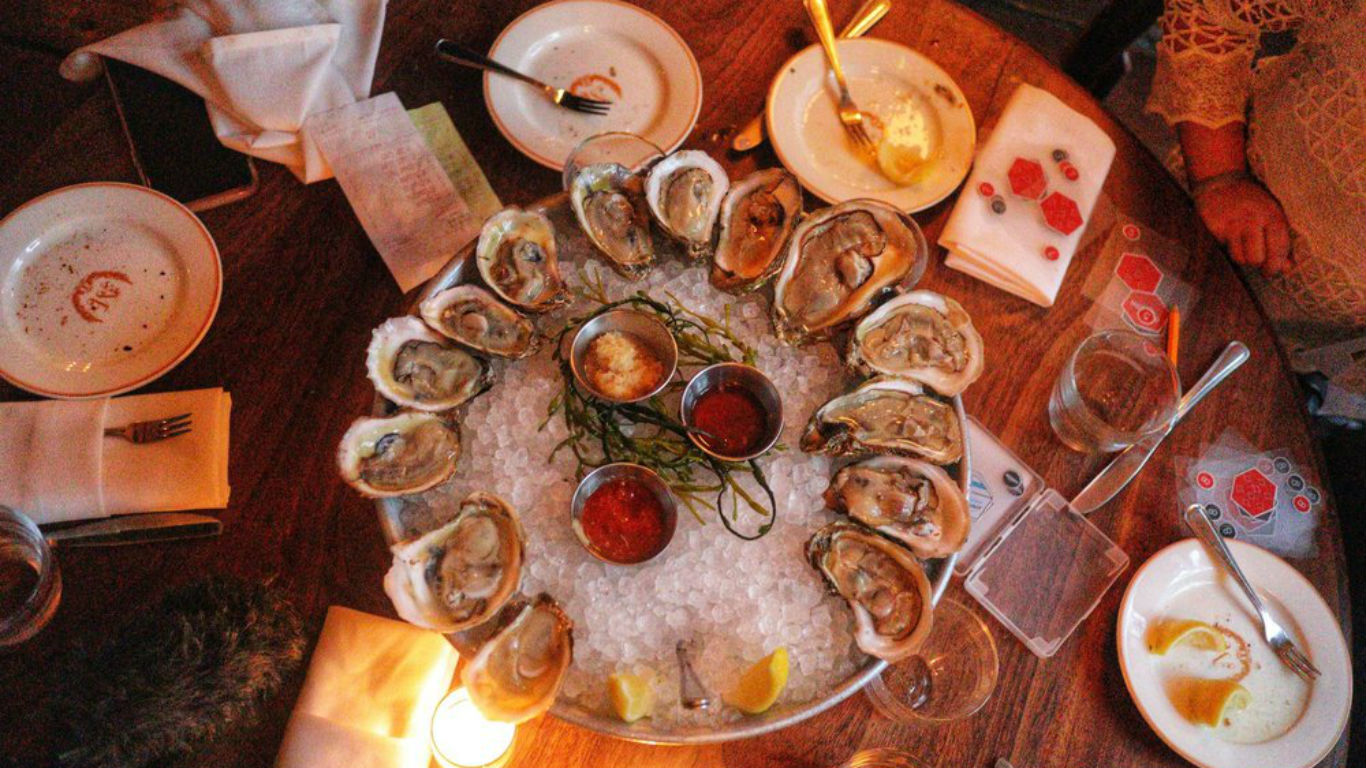
New York: Maison Premiere
> Location: Brooklyn
This popular nine-year-old Williamsburg restaurant, known for its oysters, its New Orleans-style dishes, and its James Beard Award-winning bar program, is apparently out of business. Though it has issued no official statement, its website and Instagram page have shut down, its Facebook page continues no posts, and its phone number is not in service. Maison Premier’s sister restaurant, Sauvage, also in Brooklyn, is apparently similarly closed. Both restaurants filed for Chapter 11 bankruptcy a year ago but had continued operating until they were closed, theoretically temporarily, with the advent of the pandemic.
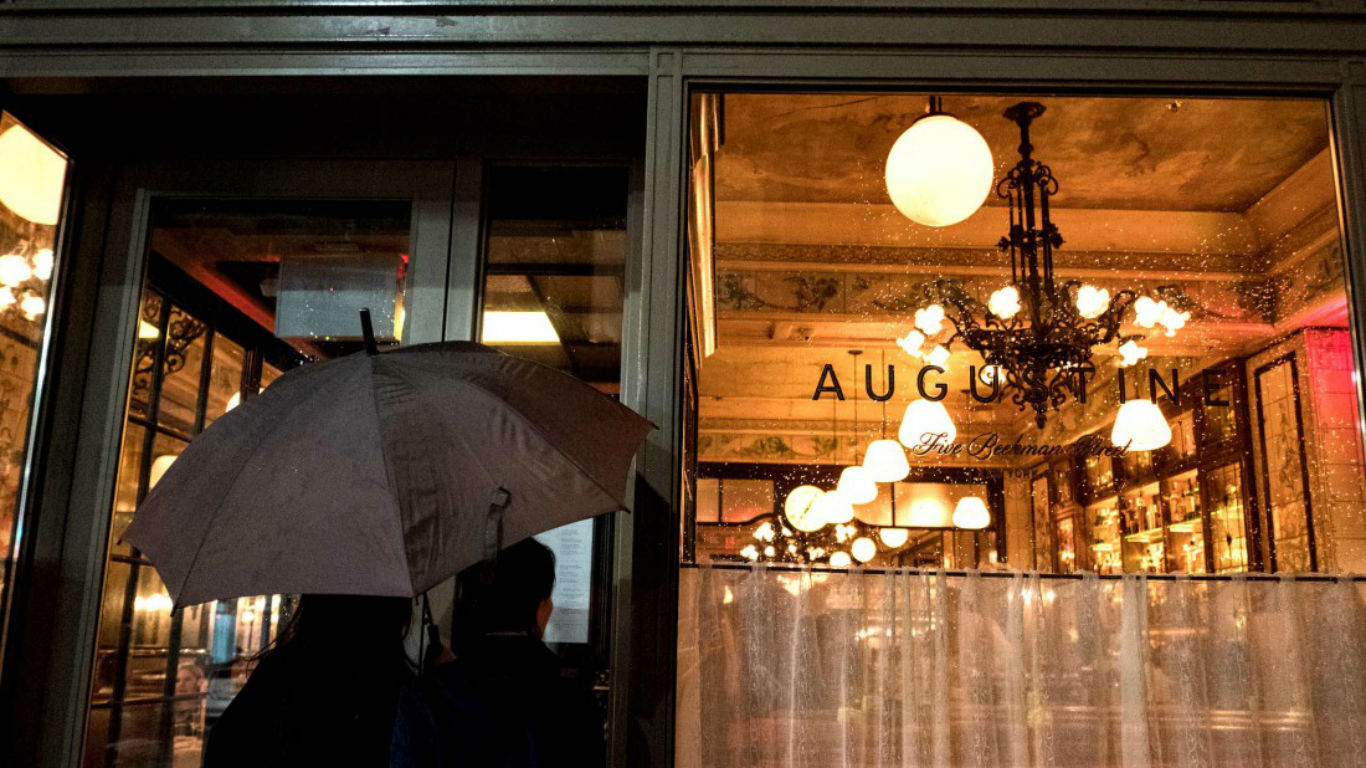
New York: Augustine
> Location: New York City
Blaming the inflexibility of his landlord, celebrated restaurateur Keith McNally announced on Instagram in late July that his French brasserie in downtown Manhattan’s Beekman Hotel, opened in 2016, is now out of business. McNally, who himself was hospitalized for COVID-19 in April but is now fully recovered, had earlier closed his 31-year-old SoHo bistro Lucky Strike due to the pandemic. On Instagram, McNally wrote that he looked forward to seeing his customers at one of his other New York City establishments — which include Balthazar, Pastis, and Minetta Tavern — “Or Debtor’s Prison – whichever comes first.”
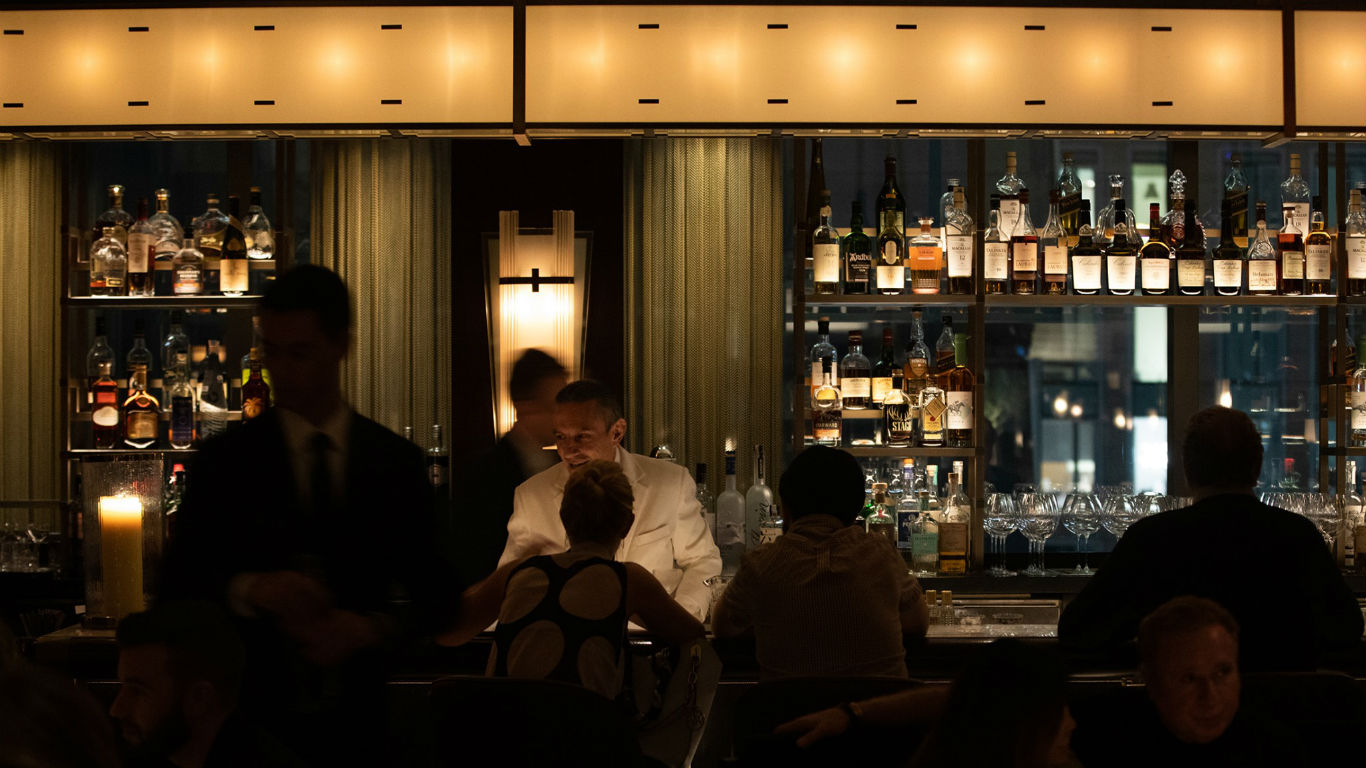
New York: TAK Room
> Location: New York City
Joining the ranks of other celebrity chefs who’ve been forced to permanently close restaurants around the nation — including the likes of Wolfgang Puck, José Andrés, Daniel Boulud, and David Chang — Thomas Keller has announced the demise of his TAK Room in the massive Hudson Yards development. The decision to close the super-pricey TAK Room as well as Keller’s more modest Bouchon Bakery in the same complex came, according to a statement on the restaurant’s Instagram page, “after painful deliberations amid a pandemic that has devastated the global economy and caused irreparable damage to our business and profession.”
[in-text-ad-2]
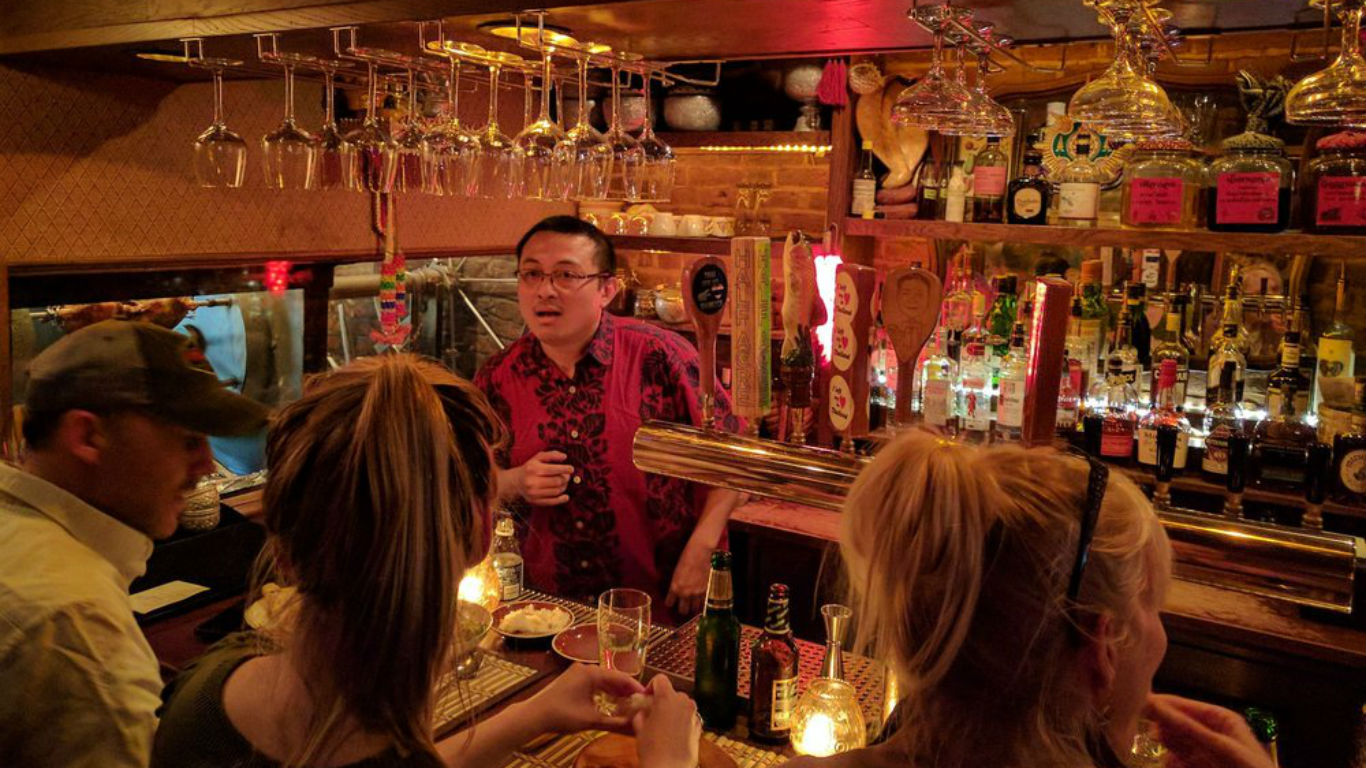
New York: Uncle Boons
> Location: New York City
Two former chefs at Thomas Keller’s acclaimed Per Se, Ann Redding and Matt Danzer, opened this small but very popular (and eventually Michelin-starred) Thai restaurant in Manhattan’s Nolita neighborhood in 2013. Now, a statement on the restaurant’s Instagram page says, “We’ve made the very difficult decision not to reopen Uncle Boon on the other side of the pandemic.” Eater called Redding and Danzer “some of the most exciting restaurateurs in NYC” on the basis of this place and their subsequently opened restaurants Uncle Boons Sister (which remains open for delivery and takeout) and Thai Diner (which will continue to deliver some favored Uncle Boons menu items).
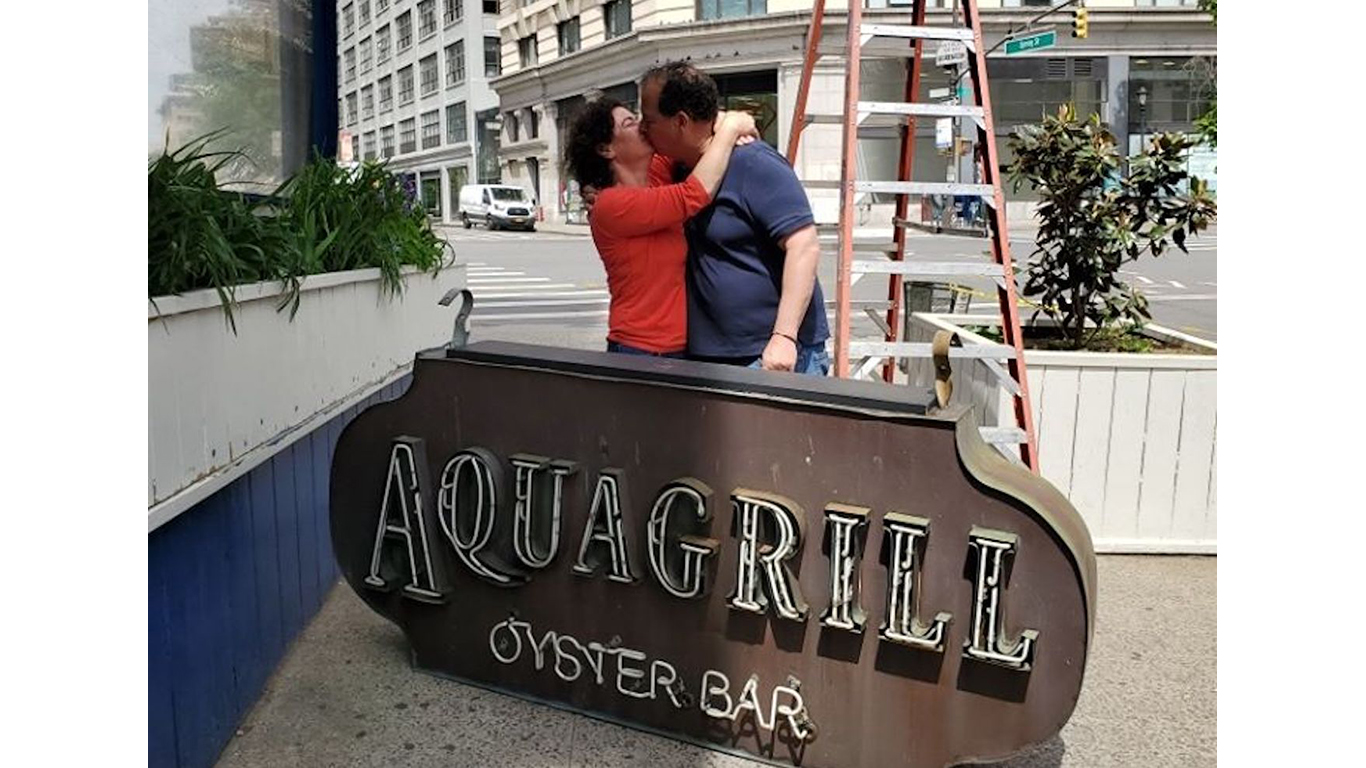
New York: Aquagrill
> Location: New York City
Add this 24-year-old SoHo seafood restaurant to the list of establishments that had closed temporarily in the face of the COVID-19 pandemic, but has now decided to make the closure permanent. “Aquagrill is not continuing to operate in light of the unsafe effects of the coronavirus on public dining out,” reads a statement on the restaurant website.
[in-text-ad]
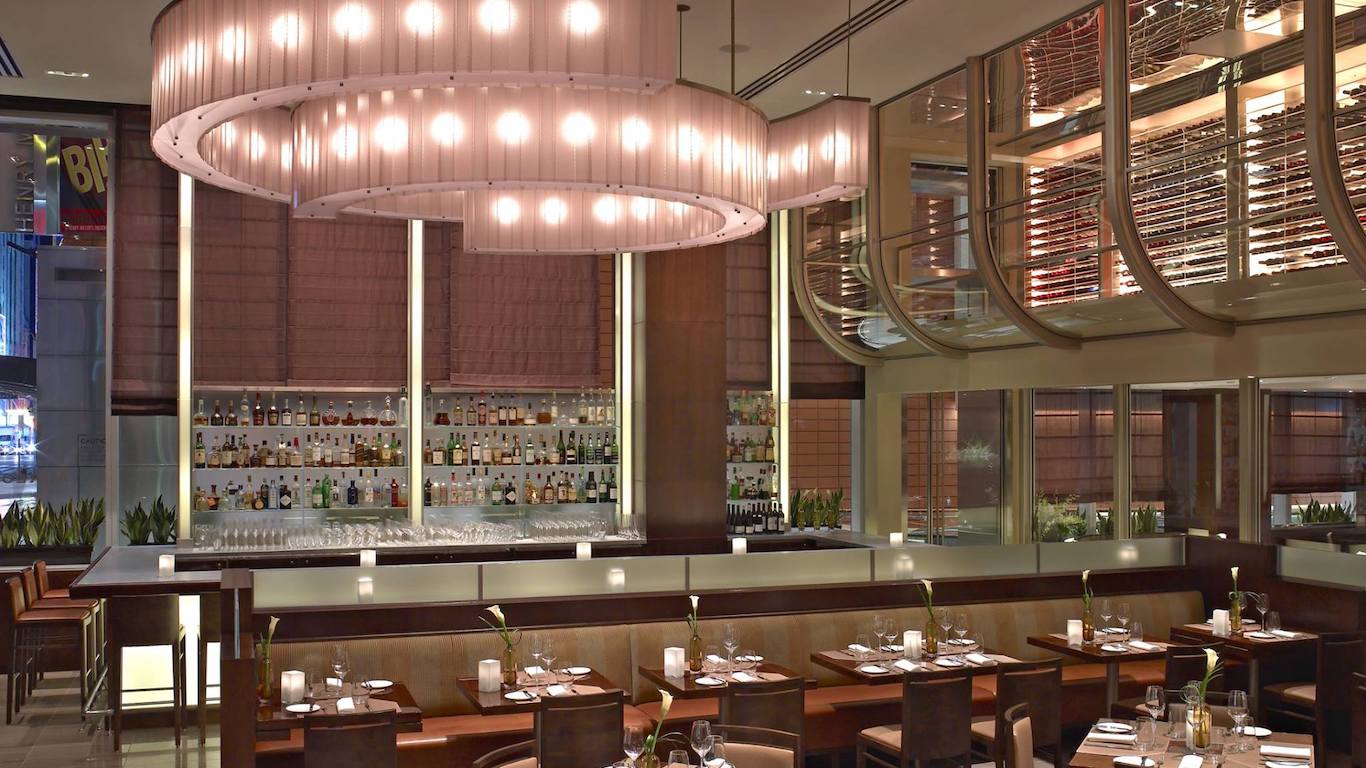
New York: Aureole
> Location: New York City
Celebrity chef Charlie Palmer announced in mid-June that his upscale 32-year-old Aureole, which relocated to 42nd Street across from Bryant Park in 2009, would not be reopening. However, said Palmer on the Aureole website, “Moving through these uncertain times and with a changing industry landscape, we remain dedicated to offering our loyal patrons the very best in American cuisine … .” That means “boutique-style take-out,” as the website explains, plus wines and craft cocktails and an Aureole catering operation.
Palmer will eventually open a steakhouse on the site, with fewer seats to meet social distancing requirements, and he has left open the possibility of opening a smaller Aureole at another location at some future time. A second Aureole location, in the Mandalay Bay Resort in Las Vegas, remains closed temporarily, but a statement on its website says “our priority is to reopen.”
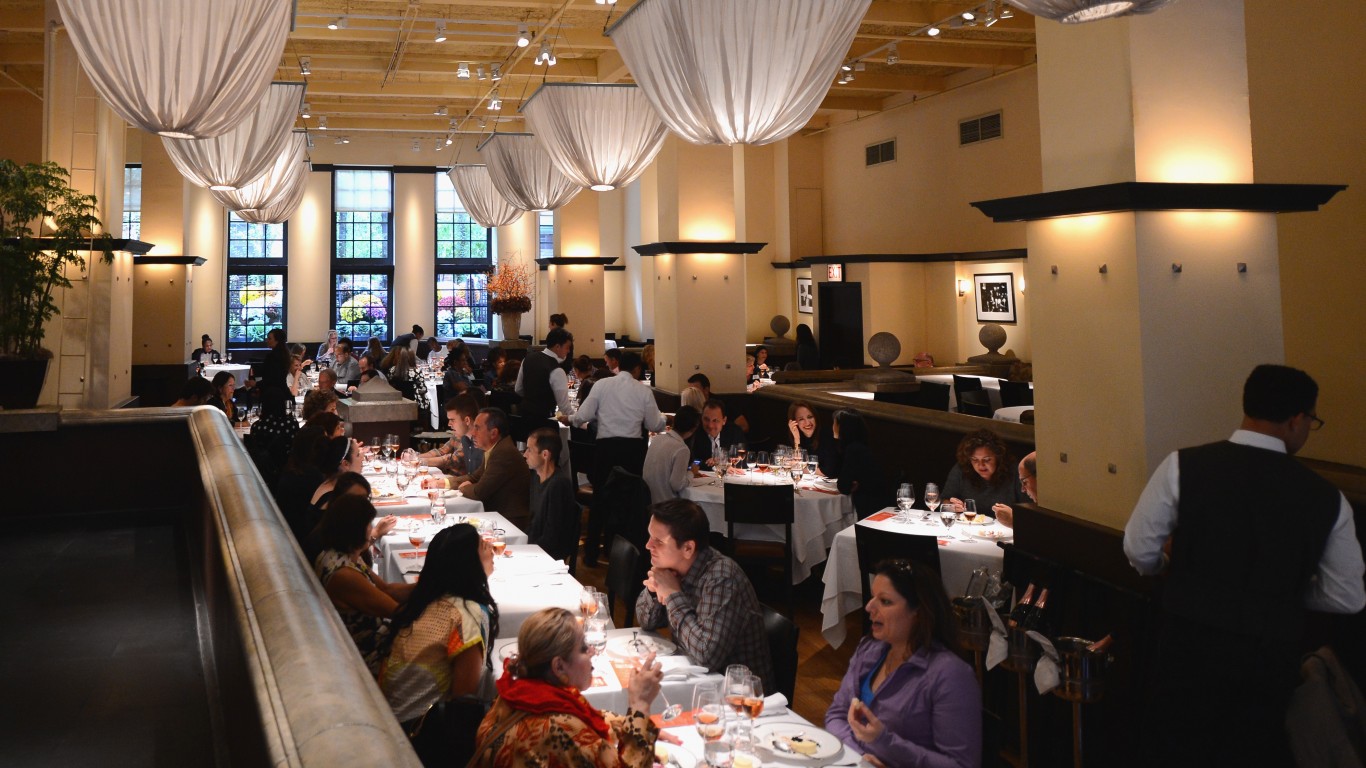
New York: Gotham Bar & Grill
> Location: New York City
One of the most famous and long-lived restaurants to shut down permanently in the face of the pandemic, Gotham weathered the departure last year of chef Alfred Portale, who had been in charge of the kitchen for 34 years (he started in 1985, a year after the restaurant opened). The new chef, Victoria Blamey, received promising reviews. Then came the pandemic.
In announcing the decision to close in mid-March, Gotham issued a statement explaining that “the unforeseen situation created by the coronavirus has made operation of the restaurant untenable.”
New York: Jewel Bako
> Location: New York City
A sign in the window of this well-loved Michelin-starred sushi bar near Manhattan’s Cooper Square, posted in mid-May, announced an “open house sale” of kitchen goods, appliances, and equipment, as well as wine “for cheap.” In 2018, Jewel Bako’s owners opened a chef’s counter place next door called Restaurant Ukiyo, which also won a Michelin star. A statement on the Ukiyo website announced officially that both establishments have closed for good.
[in-text-ad-2]
New York: Lucky Strike
> Location: New York City
Opened in 1989 by noted Manhattan restaurant mogul Keith McNally, this SoHo bistro initially provided takeout and delivery services when in-house dining was banned, like many other places. It stopped doing that in late March, before announcing in April that it would not be reopening. The restaurateur blamed “Greedy landlord during lockdown syndrome” for the closure. McNally — whose other restaurants include the acclaimed Balthazar and Minetta Tavern — was himself hospitalized in London with COVID-19 in early April.
New York: Momofuku Nishi
> Location: New York City
David Chang, the chef-restaurateur whose Momofuku empire has been a major influence on the American food scene. He opened this establishment in 2016 with an Italian-Korean theme, recasting it with a more purely Italian menu the following year. It never took off like some of his other places, and in mid-May, his company announced on its website that “returning to normal is not an option,” so the place won’t reopen. Chang also plans to move his popular Ssäm Bar from the East Village to South Street Seaport, where he has another restaurant location.
[in-text-ad]
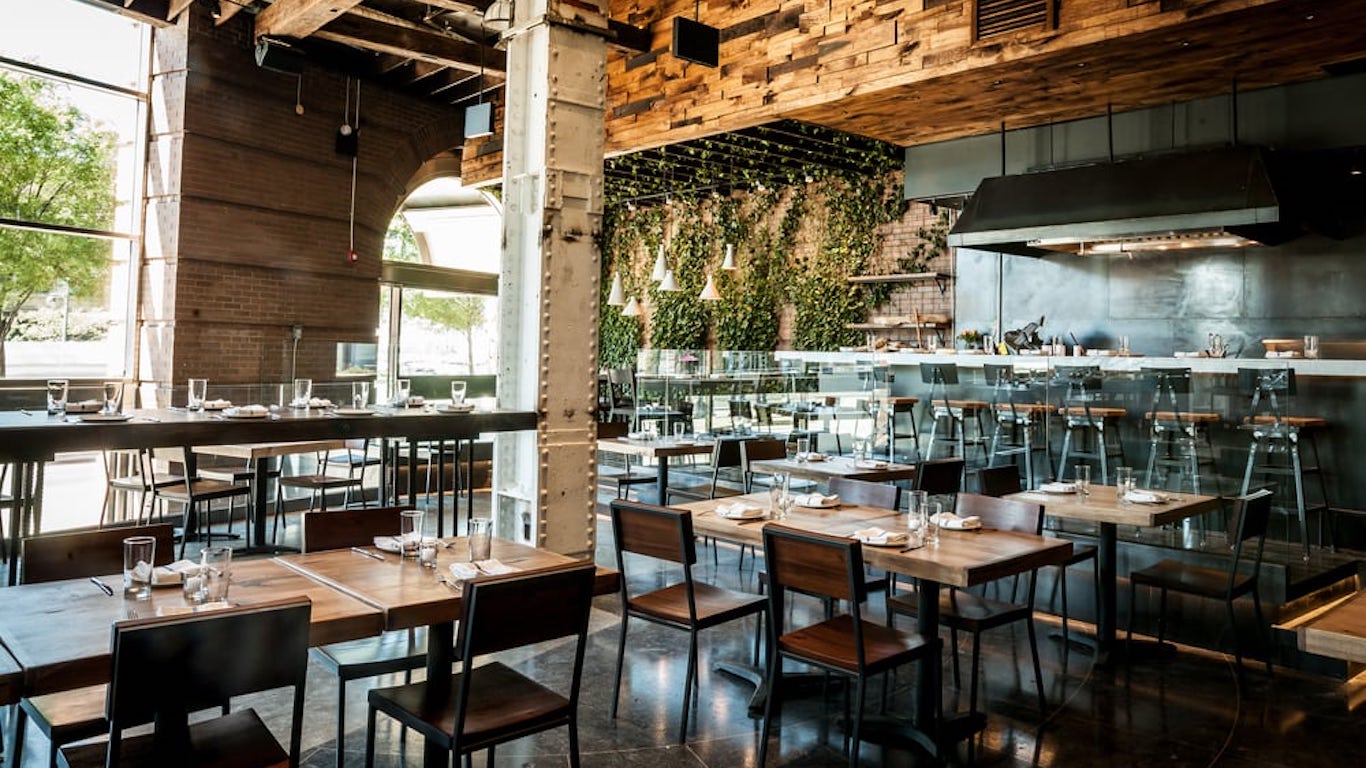
New York: Toro
> Location: New York City
Noted Boston chef-restaurateurs Ken Oringer and Jamie Bissonnette have permanently closed the once-bustling Manhattan location of this tapas restaurant, opened in 2013. The original Boston restaurant and a location in Dubai remain in business. “Toro NYC has come to the end of our journey,” reads a statement on the restaurant’s Instagram page, “and the staff will not have a restaurant home to come back to when this pandemic ends.”
Oregon: Pok Pok restaurants
> Location: Portland
James Beard Award-winning chef-restaurateur Andy Ricker, whose Pok Pok restaurant group specializes in northern Thai and Vietnamese cooking, announced on Instagram in mid-June that he was closing four of his six Portland locations. It was originally reported that the shuttered restaurants would include Pok Pok NW, Whiskey Soda Lounge, and two outposts of Pok Pok Wing. The original Pok Pok would reopen, it was said, and a third Pok Pok Wing might also come back to life. Currently, however, the Pok Pok website states that “All Pok Pok restaurant locations are closed for on site service,” adding that meal kits and some prepared food is available for pickup at the company’s commissary kitchen.
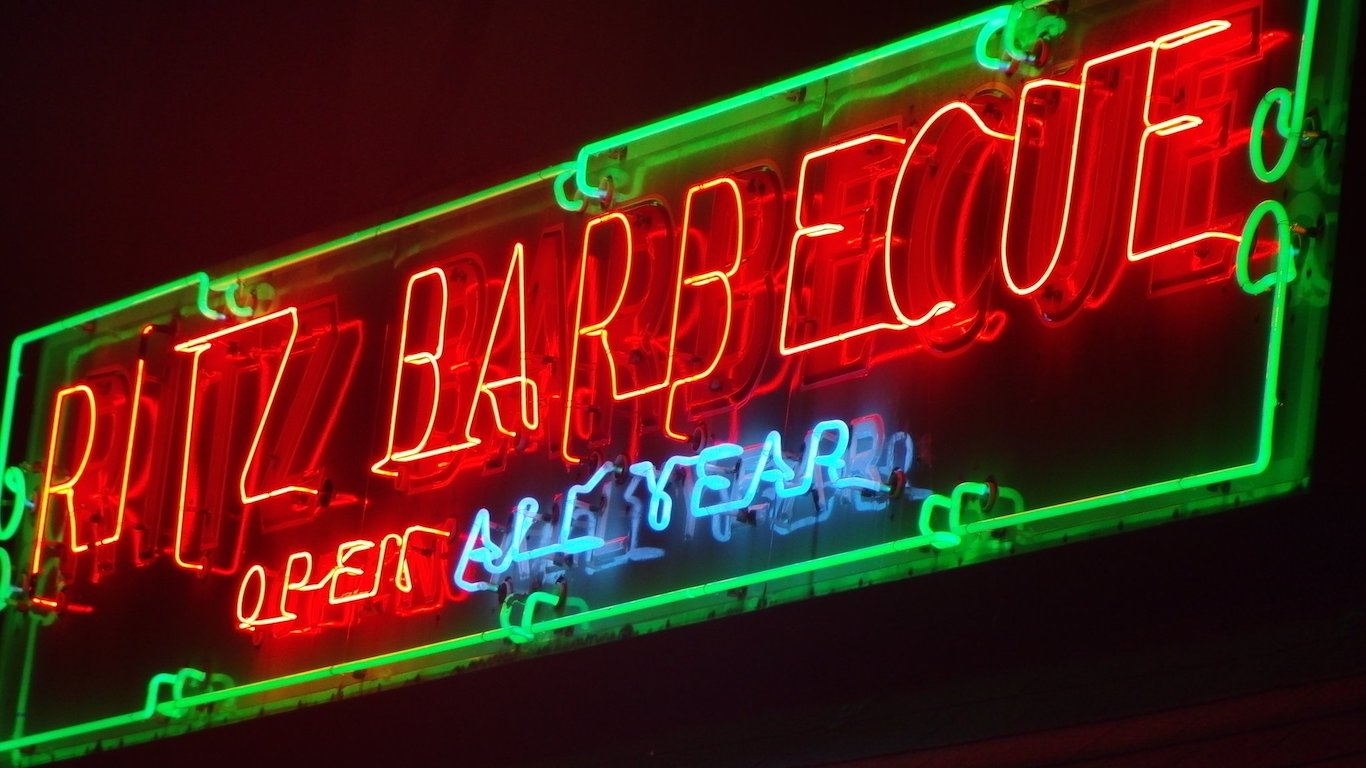
Pennsylvania: Ritz Barbecue
> Location: Allentown
Described by the Morning Call as “An Allentown landmark restaurant where generations of families gathered for barbecue, banana splits, milkshakes and more,” the Ritz grew out of a fairgrounds stand established in 1927 and moved to its present site 10 years later. The current owners, Jeff and Grace Stinner, who took over in 1981, announced in mid-June that they would not reopen. Though the restaurant had been for sale since 2019, Grace stressed to the Morning Call that the pandemic is to blame for their recent decision. “We did want to stay open until someone else took over,” she said, “but that’s not feasible now.
[in-text-ad-2]
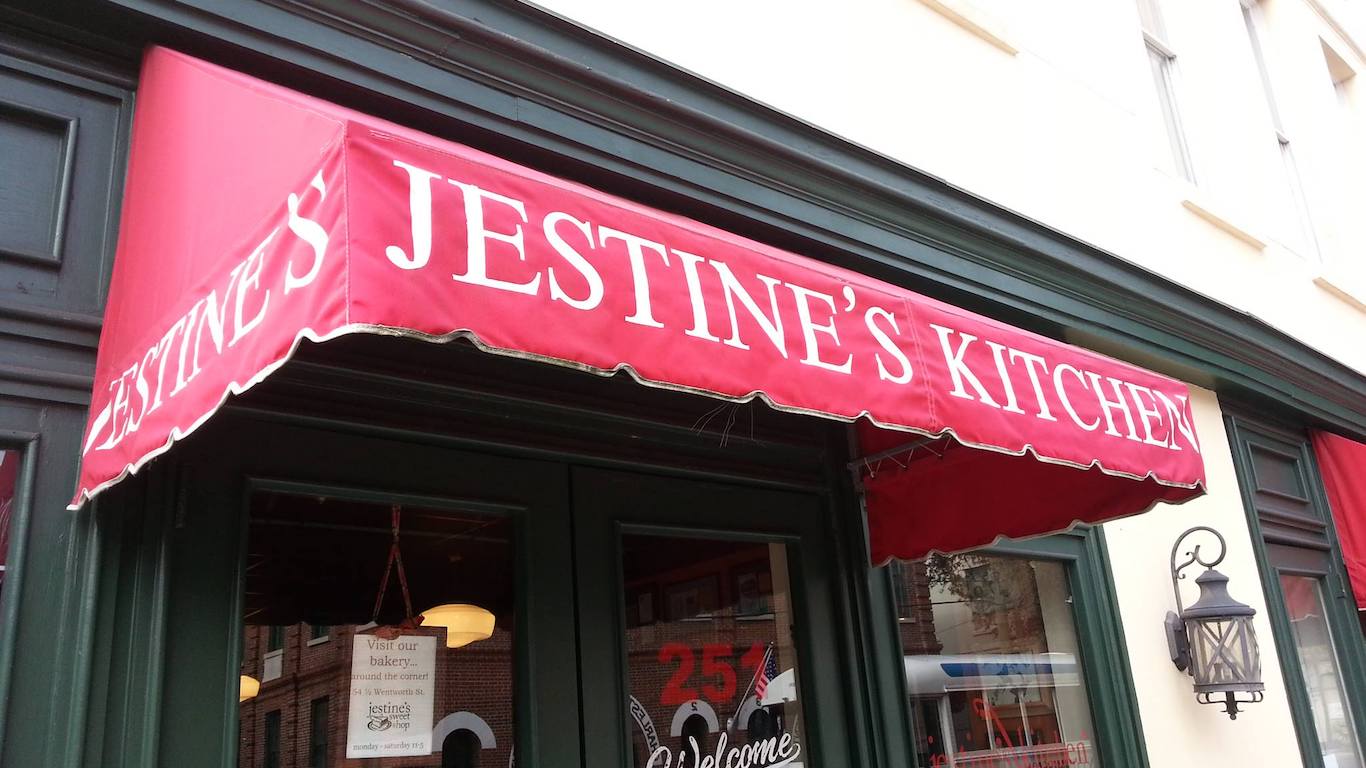
South Carolina: Jestine’s Kitchen
> Location: Charleston
A major tourist draw for 24 years, Jestine’s was named for Jestine Matthews, the African American housekeeper and cook employed by the white family that founded the place (Matthews died in 1997 at the age of 112). It was recently criticized as “the last Charleston restaurant to openly capitalize on the narrative of black servitude,” in the words of The Post and Courier. After reopening on May 20, the restaurant announced in mid-June that it would cease operations for good due to “the quick onset of the scary pandemic.”
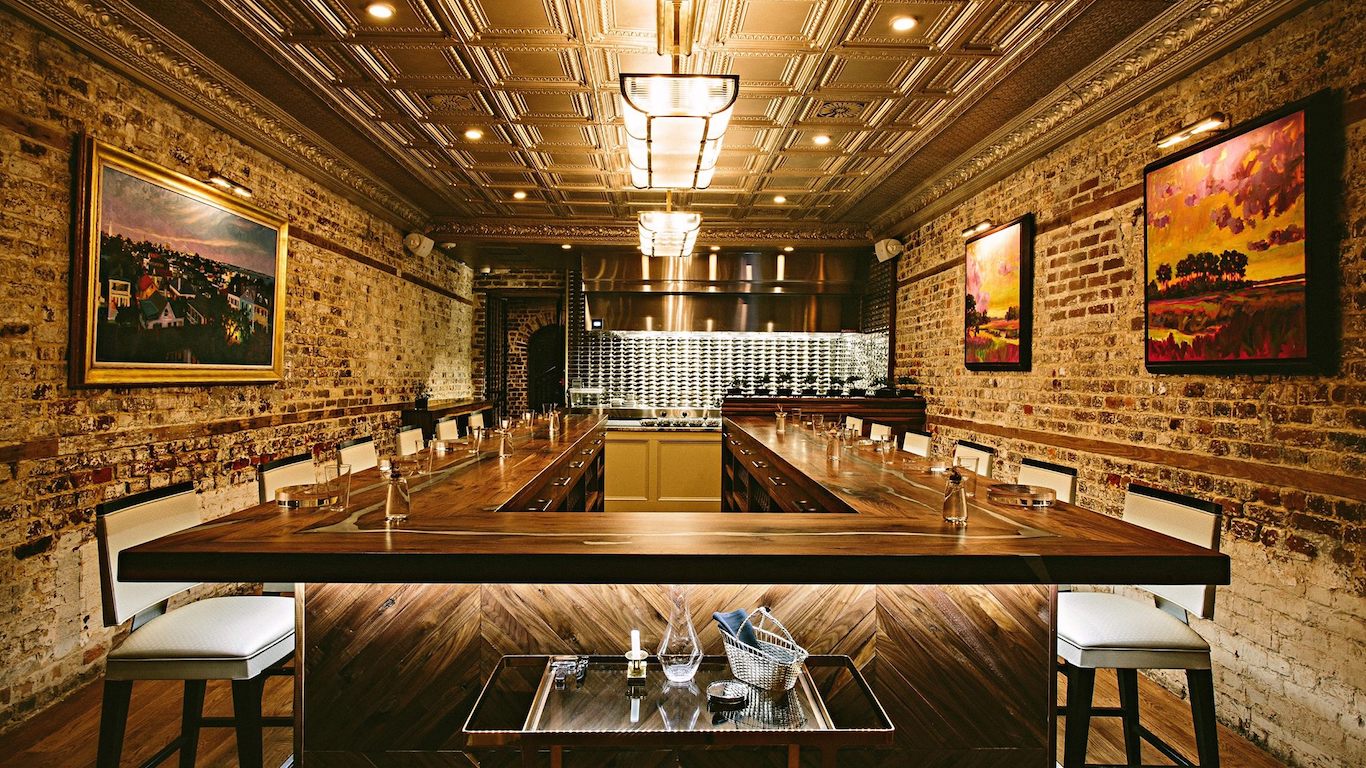
South Carolina: McCrady’s
> Location: Charleston
Known for the avant-garde tasting menus introduced by noted chef Sean Brock (who departed in 2018), McCrady’s will not resume serving even after restrictions are lifted. David Howard, president of Neighborhood Dining Group, which owns the restaurant, issued a statement saying in part that “we’ve come to the difficult decision that McCrady’s…will no longer be viable in this changed business environmentâ¦.” The group’s Mexican restaurant, Minero, upstairs from McCrady’s, has also closed for good, but the Atlanta location has reopened, with restrictions in place, and a new location, on John’s Island, just southwest of Charleston, is scheduled to open later this summer.
[in-text-ad]
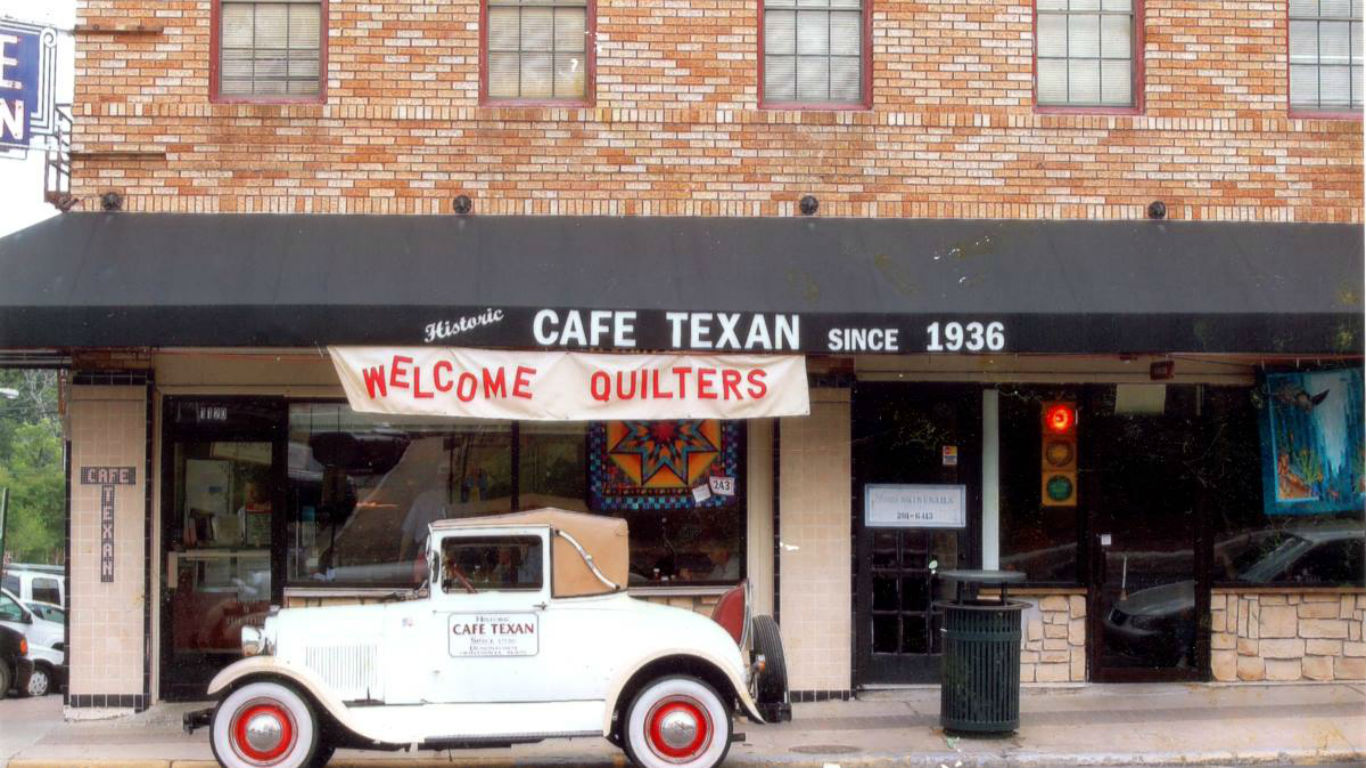
Texas: Cafe Texan
> Location: Huntsville
This iconic 83-year-old establishment north of Houston, said to have been the oldest café in Texas still in its original location, is gone for good. Owner John Strickland told The Huntsville Item that he had remained closed for months out of concern for the health of his customers, many of whom were seniors, and his staff. However, he said, “I had not intended to close it permanently.” When he realized that that would be necessary, he sold the building, which will apparently be turned into a museum.
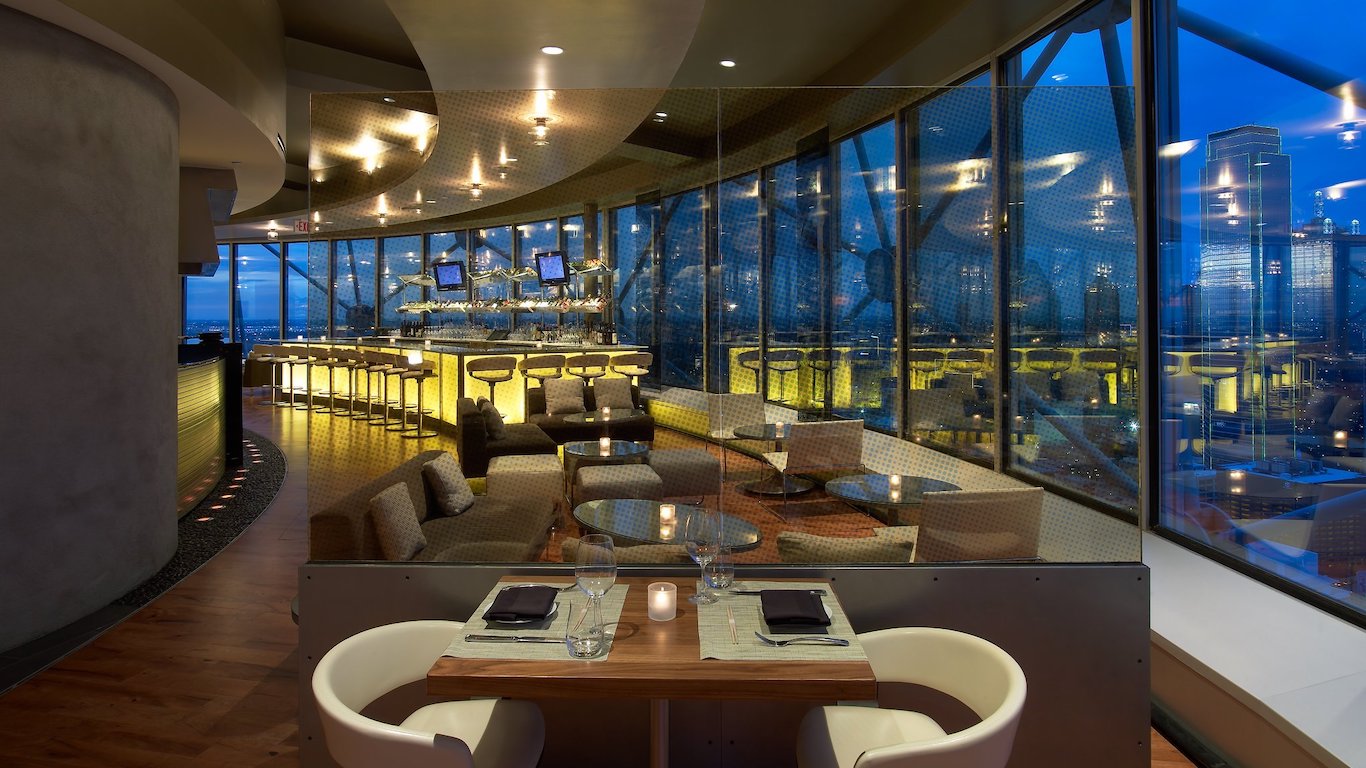
Texas: Five Sixty
> Location: Dallas
Famed chef-restaurateur Wolfgang Puck’s modern Asian restaurant on top of Dallas’s Reunion Tower, which opened in 2009, is no more. A press release blamed its demise on “scheduled improvements” to the space “in combination with the unknown timeline due to the Coronavirus.” Puck will retain a catering operation in Dallas.
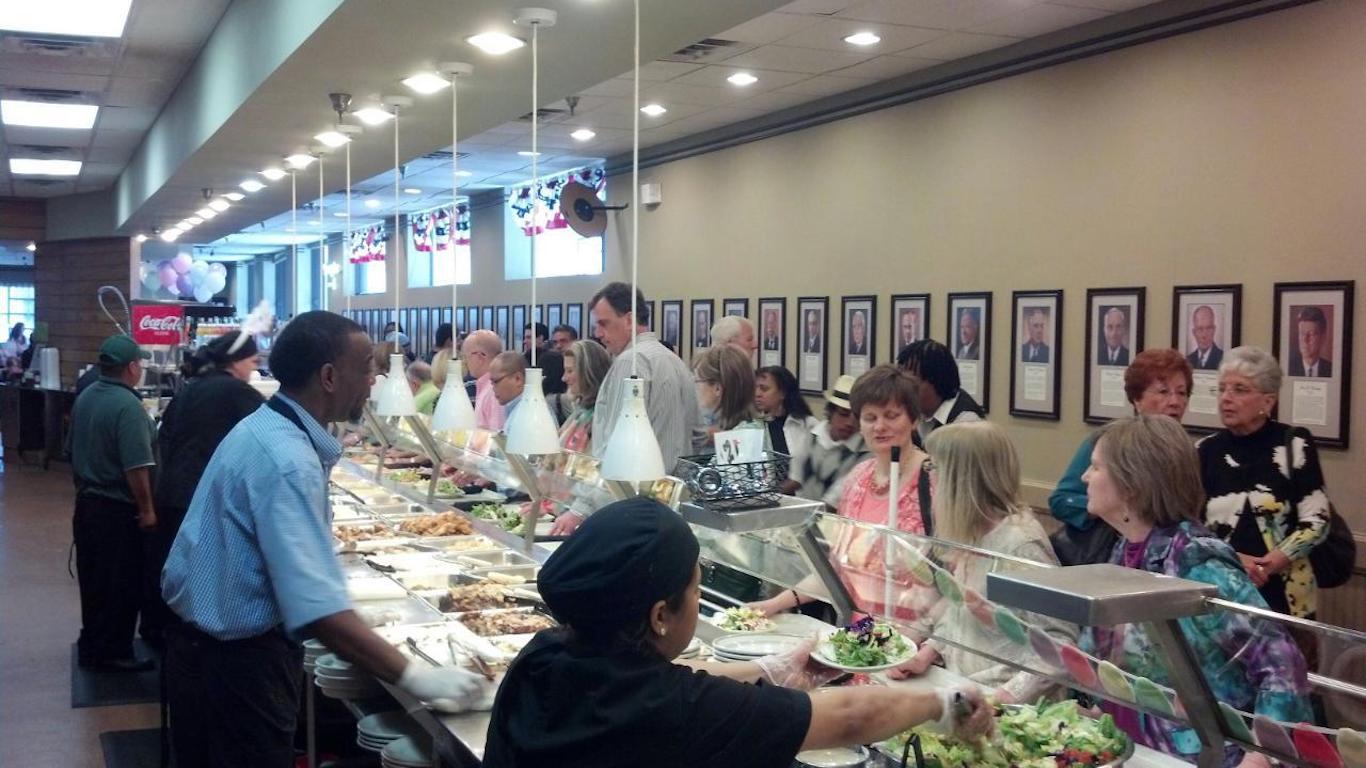
Texas: Highland Park Cafeteria
> Location: Dallas
Known for its zucchini muffins, chicken-fried steak, homemade pies, and other comfort food, this community favorite, opened in 1925, will not reopen. Addressing its customers, a statement on the restaurant website said “We would love to have a farewell event to honor you and our faithful employees, but due to the current restrictions, we won’t be able to do so.” The statement left open the possibility that the place might be revived in the future, adding “So, making no promises — but who knows? Zucchini Muffins may one day make a comeback!”
[in-text-ad-2]
Texas: Threadgill’s
> Location: Austin
Opened as a gas station and beer bar in 1933, this Austin institution evolved into a leading music venue, hosting such luminaries as Janis Joplin and Jerry Lee Lewis, and then into a restaurant in 1981 after a new owner bought it. Threadgill’s spawned a second location in 1996, but that one closed in 2018, and now the original Threadgill’s has closed as well. The premises will be sold at auction on Aug. 8.
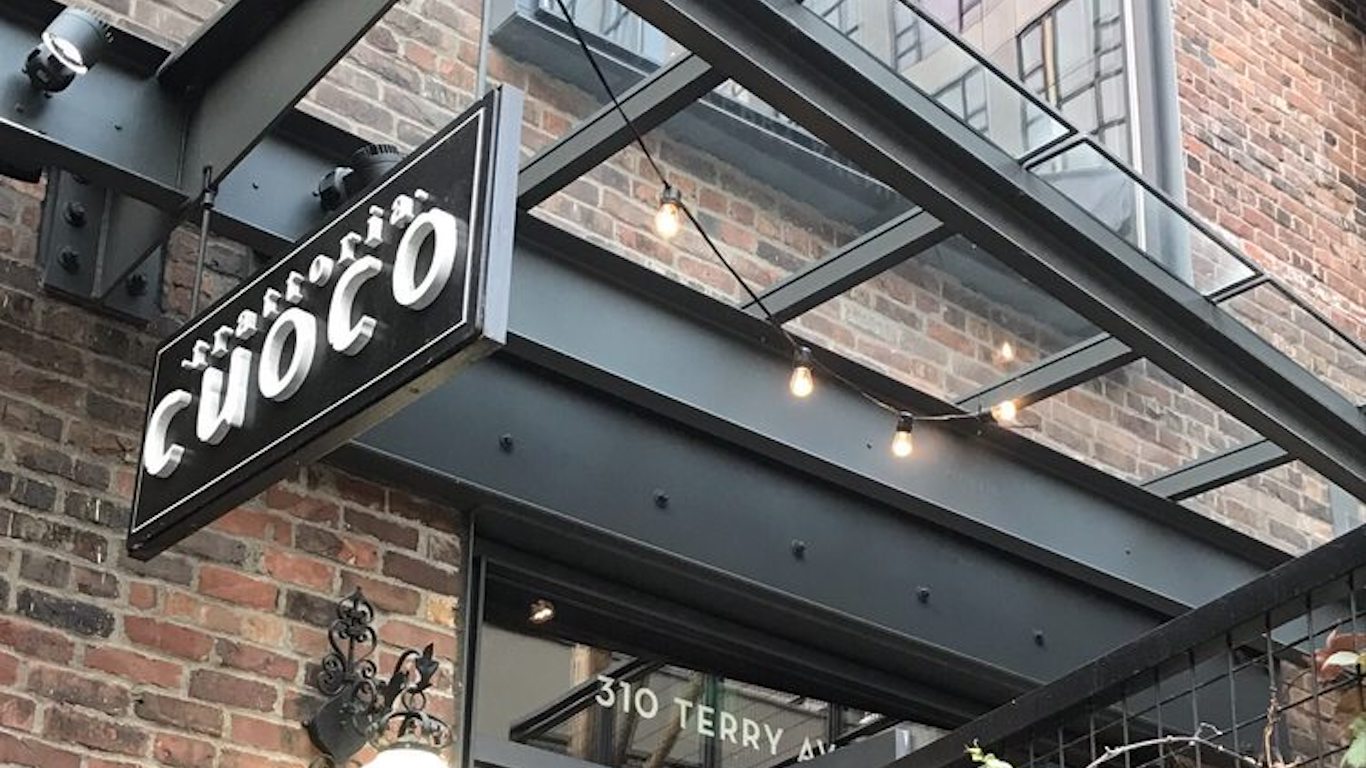
Washington: Trattoria Cuoco
> Location: Seattle
Prolific Seattle restaurateur Tom Douglas temporarily closed 12 of his 13 local establishments in mid-March over coronavirus concerns. Now, he has announced that he won’t reopen this one, a popular pasta place located in one of Amazon’s buildings in the South Lake Union neighborhood. He will also close his Brave Horse Tavern in the same complex. “Many factors weighed into the determination,” he said in a statement, “but in the end, it is the appropriate choice for our business.”
[in-text-ad]
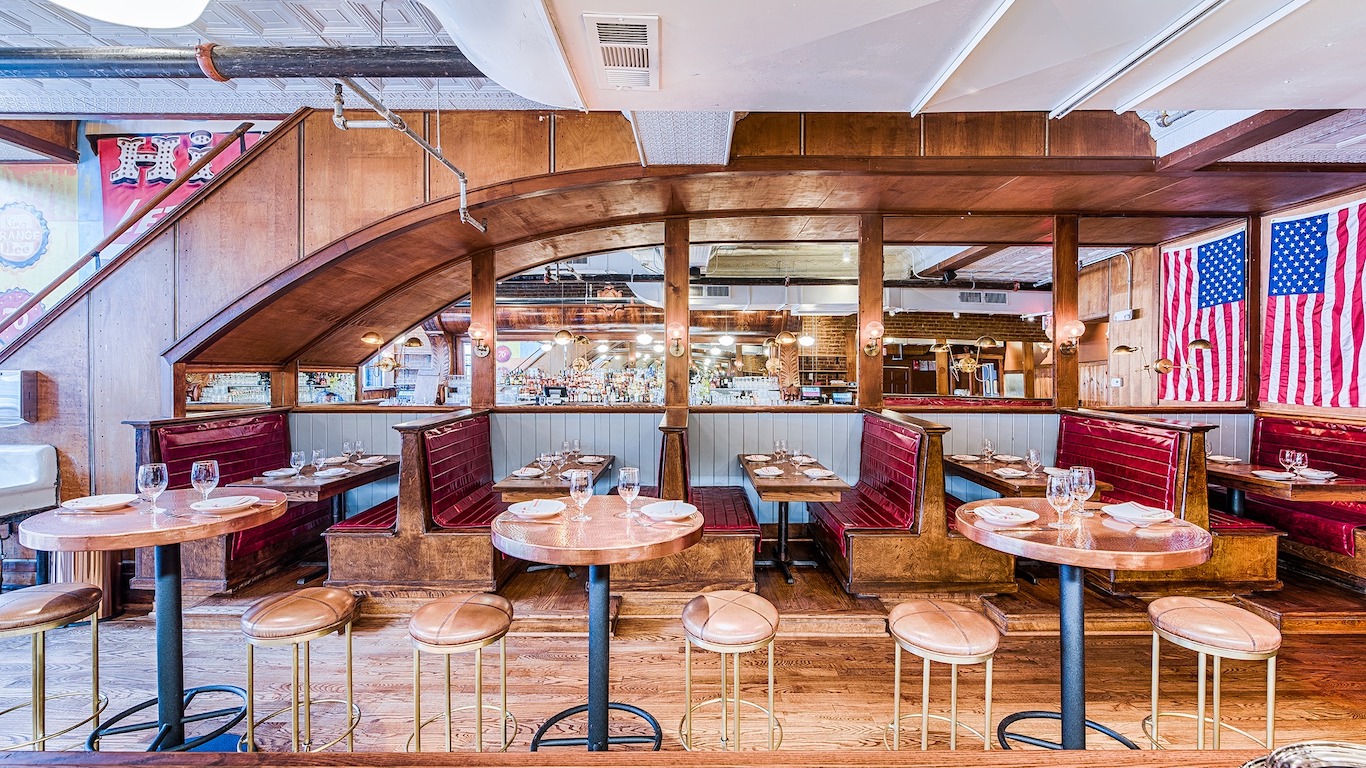
Washington, D.C.: America Eats Tavern by José Andrés
> Location: Washington D.C.
Peripatetic chef-restaurateur and humanitarian José Andrés opened the original America Eats in 2011 as a pop-up on the site of his Café Atlántico to coincide with an American food exhibition called “What’s Cooking, Uncle Sam?” at the National Archives. It moved from there to the suburb of Tysons Corner, Virginia, and then, two years ago, to Georgetown. In late June, a post on the restaurant’s Facebook page announced that “we will not be reopening in our current home, we look forward to revisiting this concept in the future.”
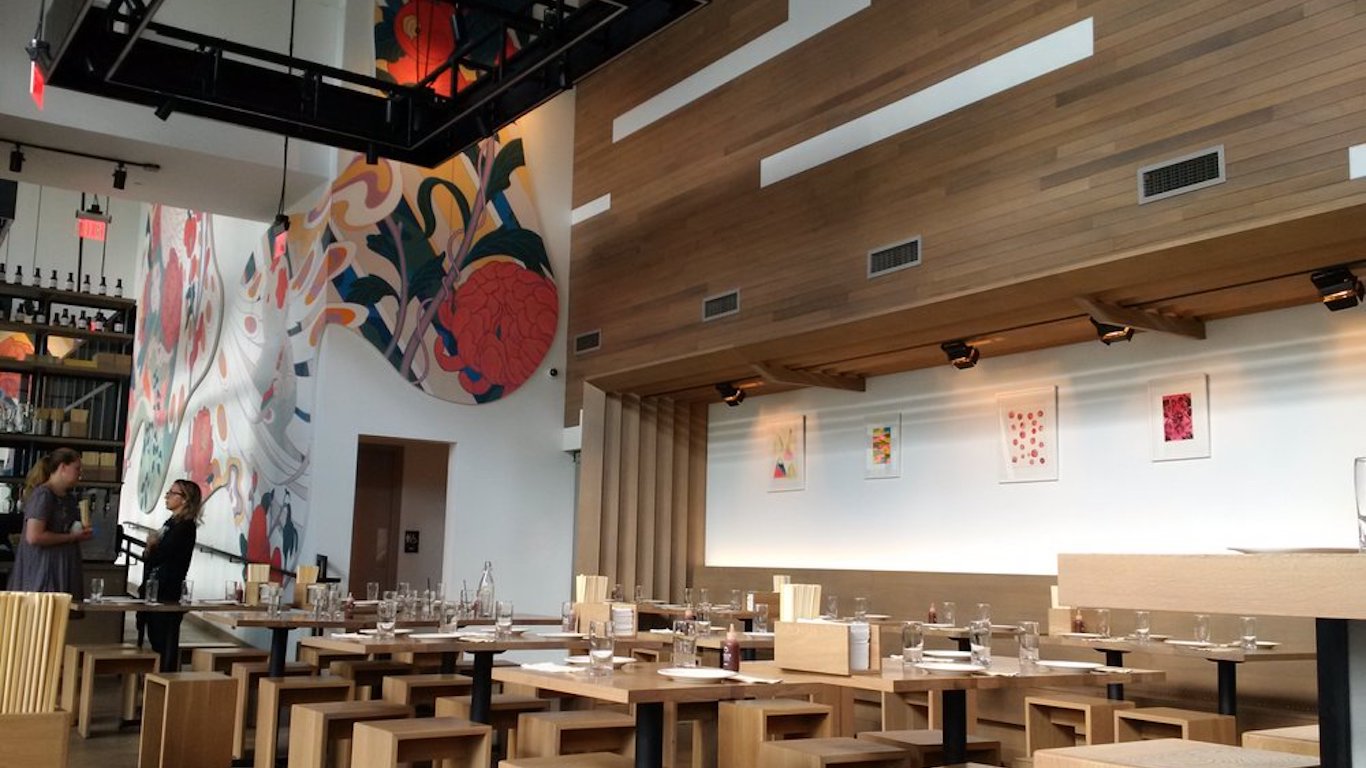
Washington, D.C.: Momofuku CCDC
> Location: Washington, D.C.
In addition to shuttering his Momofuku Nishi in New York City (see above), Influential chef-restaurateur David Chang announced the demise of his “hometown project” (he was born nearby in northern Virginia) in mid-May after almost five years. According to a message from Momofuku Group CEO Marguerite Zabar Mariscal on the company website, the organization “investigated every scenario to make the math work” in light of the pandemic, but ultimately “the financial picture…no longer made sense.”
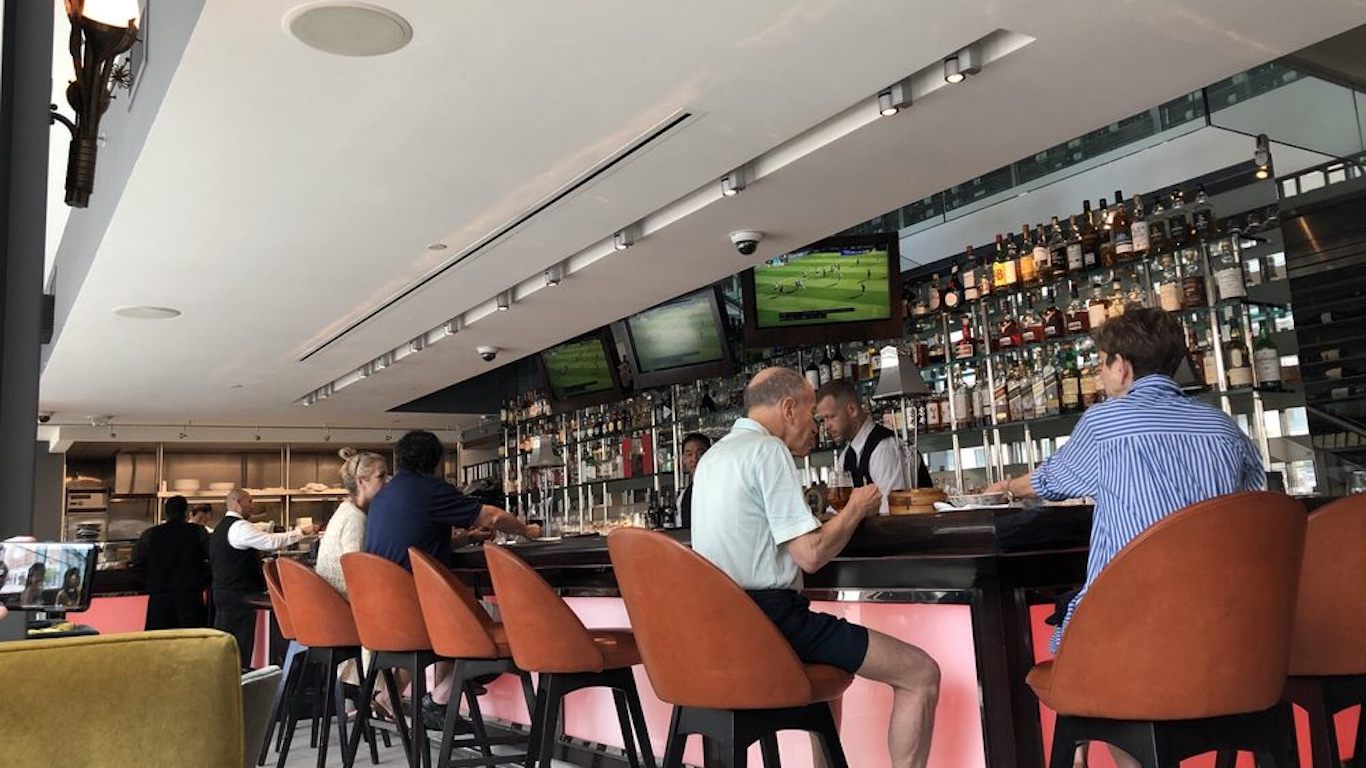
Washington, D.C.: The Source
> Location: Washington, D.C.
After 13 years in business, it’s curtains for Wolfgang Puck’s first restaurant in the nation’s capital. (He retains a subsequently launched branch of his CUT steakhouse in the city’s Rosewood Hotel). A modern Asian restaurant in the basement of what was once the Newseum — an institution devoted to journalism and the First Amendment that closed at the end of 2019 — The Source is now permanently shuttered.
[in-text-ad-2]
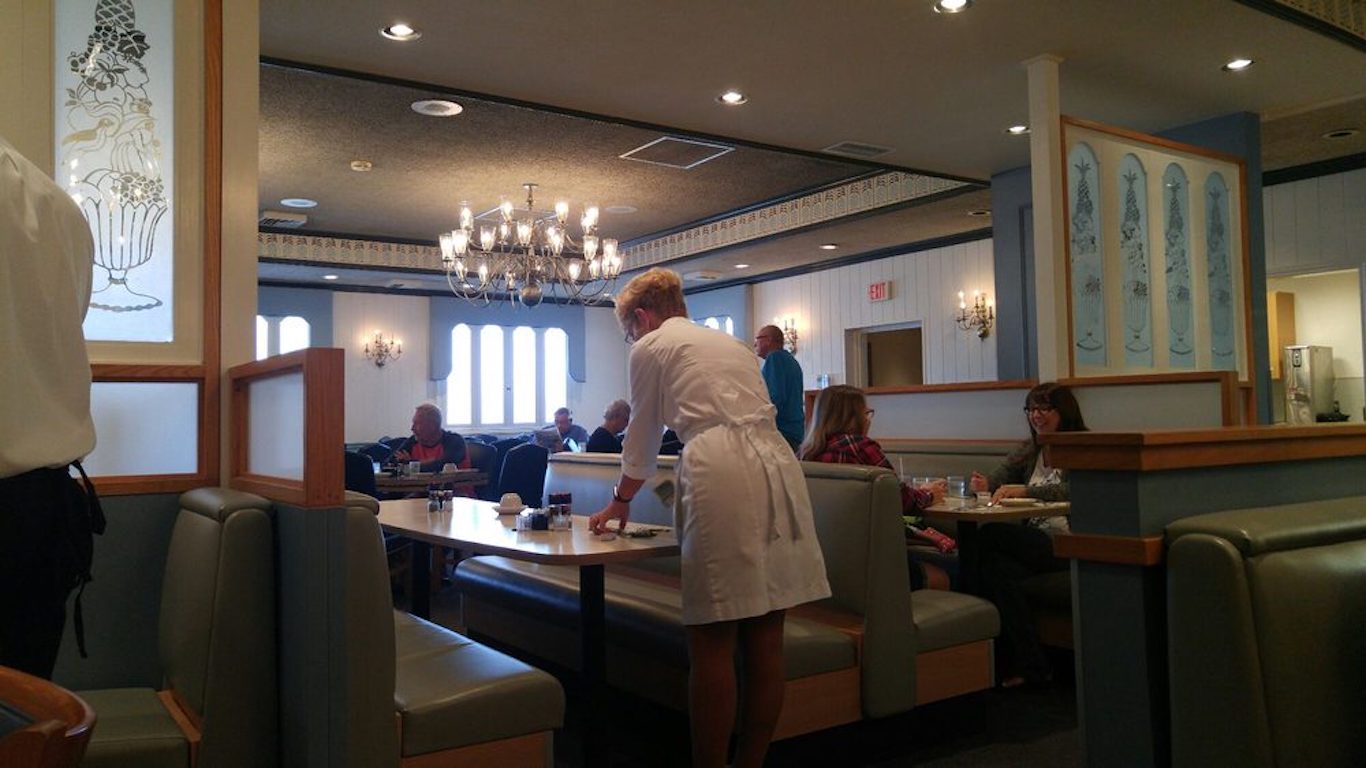
Wisconsin: Schreiner’s Restaurant
> Location: Fond du Lac
A popular family dining destination since 1938 in this city on Lake Winnebago in eastern Wisconsin, Schreiner’s announced in late May that it was closing its doors. The decision not to reopen, according to a statement on the restaurant website, “was not one that we made easily; unfortunately, it was unavoidable and our only real option given the economics associated with the current pandemic crisis.”
Choosing the right (or wrong) time to claim Social Security can dramatically change your retirement. So, before making one of the biggest decisions of your financial life, it’s a smart idea to get an extra set of eyes on your complete financial situation.
A financial advisor can help you decide the right Social Security option for you and your family. Finding a qualified financial advisor doesn’t have to be hard. SmartAsset’s free tool matches you with up to three financial advisors who serve your area, and you can interview your advisor matches at no cost to decide which one is right for you.
Click here to match with up to 3 financial pros who would be excited to help you optimize your Social Security outcomes.
Have questions about retirement or personal finance? Email us at [email protected]!
By emailing your questions to 24/7 Wall St., you agree to have them published anonymously on a673b.bigscoots-temp.com.
By submitting your story, you understand and agree that we may use your story, or versions of it, in all media and platforms, including via third parties.
Thank you for reading! Have some feedback for us?
Contact the 24/7 Wall St. editorial team.